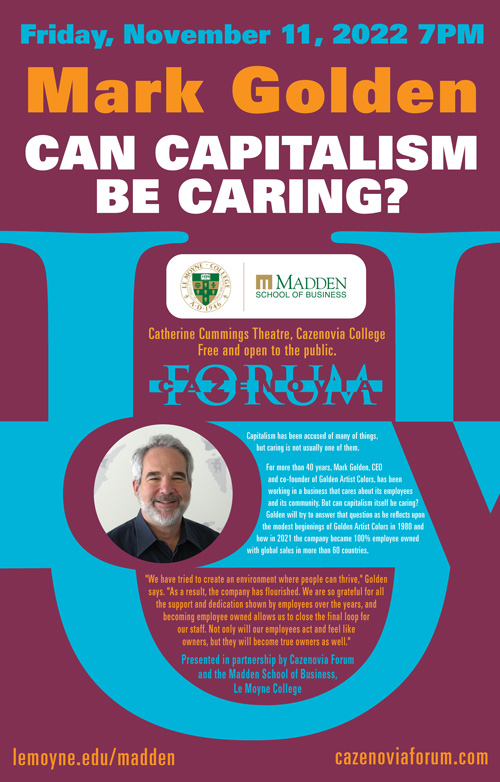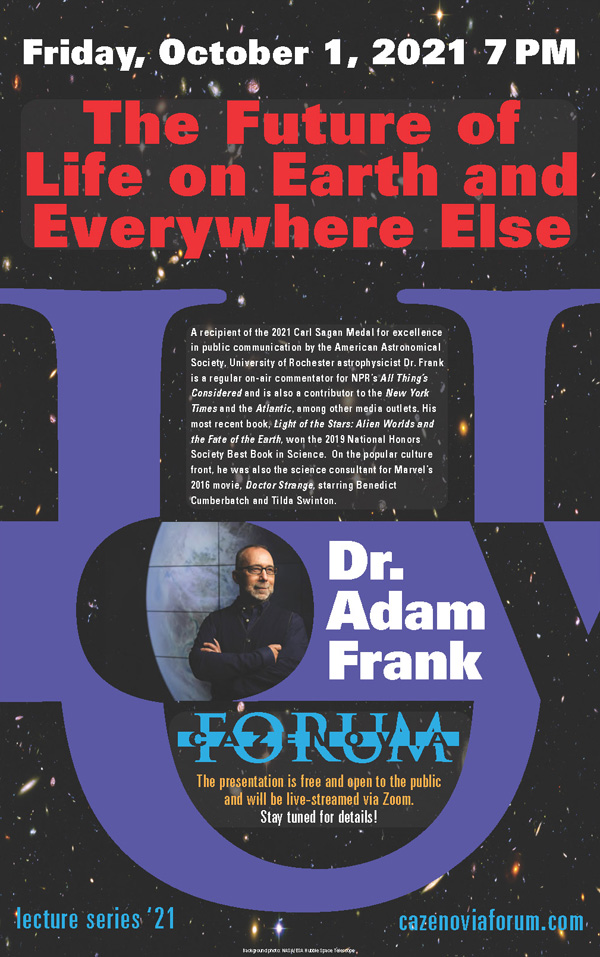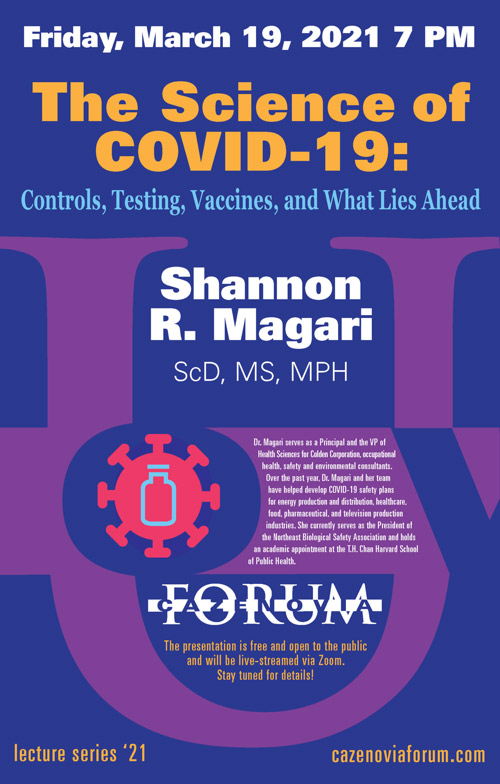2024 Speakers & Presentations
Corey Ponder, policy analyst
Michael O. Snyder, assistant professor & photographer
Galen Druke, podcaster on democracy and electoral politics
« HIDE DETAILS »
Galen Druke
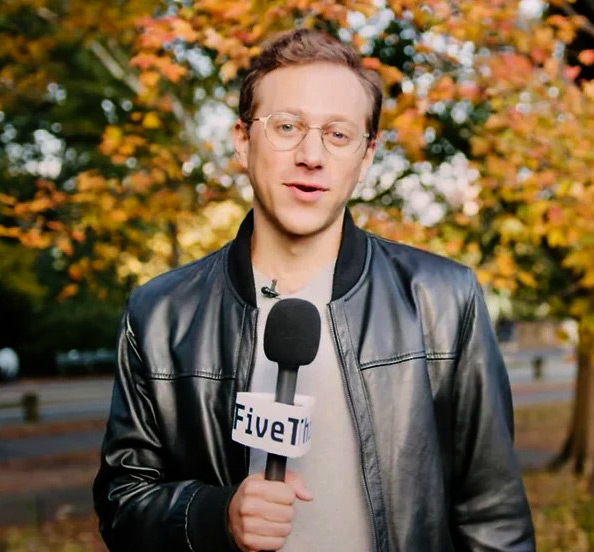
"Making Sense of the 2024 Election"
"I love people and asking questions," says Galen Druke. He spoke on Friday, Oct. 18, 2024 in the Betsy Kennedy Community Room at the Cazenovia Public Library.
Druke, who attended Cazenovia High School, is the host of the "FiveThirtyEight Politics" podcast, which aims to explain politics through an engaging blend of statistics and traditional reporting. He has appeared on ABC News, BBC, NPR, C-Span, CBC, WNYC, Sky News, Deutsche Welle and more.
An expert on American democracy and electoral politics, Druke's first full-time job after graduating from Johns Hopkins University was at Wisconsin Public Radio where he was one of the creators of a popular daily newsmagazine.
In his public presentations, Druke analyzes polling data and synthesizes complex information into a coherent narrative, providing context and perspective on the current issues. "Key to representing the content for audio is to try to avoid listing numbers and try to tell a story around the numbers that you are talking about," he said in a 2018 interview with Northeastern University's School of Journalism. "Hopefully we've helped people learn about how probability, elections and uncertainty work over time."
In that interview, he noted that polls do not predict outcomes with certainty, but instead provide an estimate. Although pollsters in 2016 were accused of getting it wrong, Druke points out that Donald Trump was given a 30% chance of winning and that "things with a 30 percent chance of happening are going to happen all the time."
"It's important to think about the ways that we confront uncertainty in our own daily lives," he said. "Part of living is understanding that not always the most expected outcome happens. That's something we try to help people understand on the podcast – that just because the most expected outcomes won't always happen, it doesn't mean you should reject the method altogether."
Corey Ponder
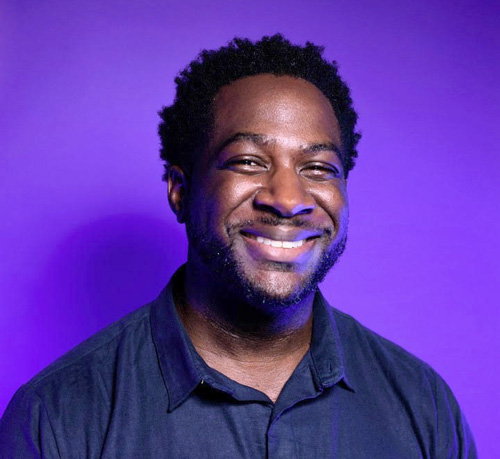
"Being Online Today:"
Empathy and Trust in a Hyper Digital World" -
n recent years, building relationships has increasingly happened online: on social media platforms, in digital spaces, and behind screens. As users, how can we connect deeply and authentically with others, while maintaining necessary levels of trust and safety? And how can the online spaces and products we're in and on every day be developed to support users?
Empathy is the key, says Corey Ponder. His focus on empathy and working with others stems from a simple belief: "Nothing is simply someone else's problem." Ponder will explore the theme Wednesday, May 1, in a talk presented by the Cazenovia Forum. Titled "Being Online Today: Empathy and Trust in a Hyper Digital World", the talk will be at 7 p.m. at Cazenovia High School, 31 Emory Ave., Cazenovia. The presentation is free and open to the public with a reception at the Brewster Inn to follow.
With more than a decade of professional experience as a policy analyst in the public sector and a policy leader in the tech sector, Ponder knows that an emphasis on emotional intelligence—self-awareness, empathy, and interpersonal skills—leads to a more committed, productive, and engaged product and workforce. He has provided inclusion initiatives across several companies, including the CIA, Google and Meta.
His focus on empathy was sparked by an interaction with his manager in 2016 when two black men, Philando Castile and Alton Sterling had been killed by police officers. "I saw myself in these men and their untimely deaths shook me," he writes. When he got to work, and his manager asked him how he was, she wouldn't accept the automatic response we give when we think others are not really interested. She pursued it and acknowledged the news about Castile and Sterling and in that moment, Ponder says, "she created an opportunity for processing, reflecting and empathizing together." It was then that he realized that he was part of something bigger and that what affected him affected us all.
Since then, he has made empathy a daily habit. "The idea is straightforward," he writes. "Every day commit to one action that helps you understand someone better."
Michael O. Snyder
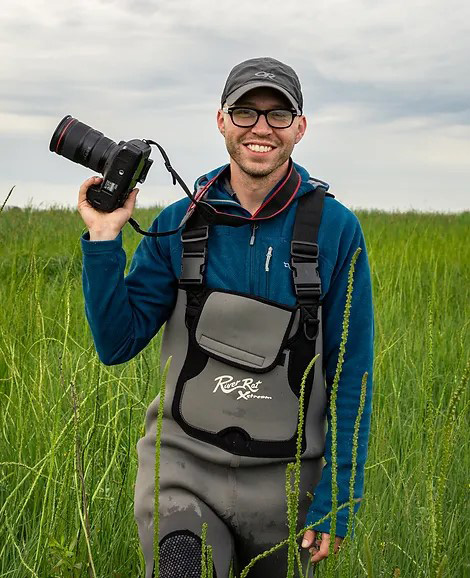
Art and science collide in Michael O. Snyder's work. His photographs tell stories of people struggling with climate change, and offer hope that despite the struggles, there will be a future. His own hope is firm. "After 50,000 generations," he says, "we're still here."
Snyder, Assistant professor of visual communications at the Newhouse School of Public Communications at Syracuse University, spoke. Friday, September 20, at Cazenovia High School as part of the Cazenovia Forum Lecture series. The presentation was free and open to the public.
Growing up on reclaimed mining land in Appalachia, amid "the innumerable scars" that industrial extraction had left on lives and landscapes, he was inspired to study environmental science in hopes of helping to "bind the wounds of my home and contribute to resolving the core crisis of our times: global climate change."
But he soon learned that science alone is not enough to drive such monumental change. His interest in behavioral models of how people adapt to environmental conditions led him to a revelation: "the real power to drive durable cultural change lies" in creating stories that challenge conventional thinking and that provide tools for transformation. "In short," he says, "reason alone does not a revolution make. We have to learn to tell a better story."
His visual works tells "a story about individuals inside the larger story of environmental disasters", he says. His arresting photographs of people and places throughout the world tell the story of climate change and how we face it. They tell "a story about individuals inside the larger story of environmental disasters," he says. He acknowledges the need to reach as broad an audience as possible, beyond those already in agreement.
"We often wind up preaching to the choir, so it's important to understand what the audience wants," he says. And he recognizes the fine line between entertaining and educating that audience., "We are entertainers first, we have to have a hook, as with all good journalism, and surprise people."
To reach that bigger audience he uses diverse media and diverse stories, he says, "using the same data to shift it in diverse directions for diverse audiences." He publishes in a variety of areas, local, national and international and tries to work with those who can effect change, whether it's in education, business or politics. Sometimes, he says, he will compress a message into something that will be seen and heard by someone in a position to vote on environmental policy. Whatever it takes to get the message heard.
"I believe in the power of narratives to shift what it means to live well on this planet without destroying it," he writes on his webpage. "I am driven to explore the relationship between environment and culture and how we can produce visual stories that lead to durable social change.
Snyder's work has been featured by outlets such as National Geographic, The Guardian, and The Washington Post. He is a Pulitzer Grantee, a Climate Journalism Fellow at the Bertha Foundation, and a member of the Society of Environmental Journalists.
Through his production company, Interdependent Pictures, he has directed films in the Arctic, the Amazon, the Himalaya, and East Africa. His films have been selected to over 60 festivals, have taken home numerous awards, have been sponsored by companies such as Sony and GoPro, and have been distributed by outlets such as New Day Films and Films for Change. He has been a featured speaker at the United Nations Climate Conference and has lectured at universities such as Yale, Columbia, and the Alfred Wegener Institute. In 2022, the University of Edinburgh named him one of its most "influential alumni making a significant contribution to climate science and justice."
Here is a link to a previous presentation given by Snyder around climate change:
https://vimeo.com/699497810
Name
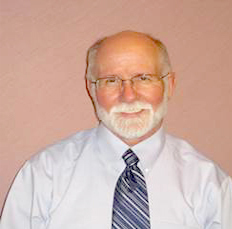
"Tagline" - biography
2023 Speakers & Presentations
Rick Reagan, financial expert
Steven Pifer, former U.S. Ambassador to Ukraine
Eric Cortellessa, staff writer at TIME
Panel discussion - Jamie Kowalczk, Derrick Pratt & Matt Urtz
« HIDE DETAILS »
Panel discussion by regional and statewide experts
"Erie Canal—Past, Present and Future"
We tend to take the Erie Canal for granted if we think about it at all. We know it was important long ago, but what does it have to do with today? A lot, actually. The Canal is far more than an artifact and its legacy lives in upstate New York's history, economy, and culture.
To provide a sense of the Canal's importance and influence, the Cazenovia Forum hosted a panel discussion Friday November 17th, 2023. Local historians and planners Jamie Kowalczk, Derrick Pratt and Matt Urtz will discuss the evolution of the 524- mile corridor that carried people and ideas along the canal and spurred action on abolition of slavery, women's rights, utopian communities, new religions, and much more.
In 2000, the U.S. Congress established the Erie Canalway National Heritage Corridor, a new kind of National Park. This designation brings resources and visibility to long-standing local efforts to celebrate how the canal has shaped our communities.
Kowalczk, Assistant Director of the Madison County Planning Department, helped initiate the creation of the Old Erie Canal Community Working Group to help revitalize canal-side communities and enhance the Old Erie Canal waterway and Old Erie Canal State Historic Park. She is currently overseeing the development of the Old Erie Canal Local Waterfront Revitalization Program which aims to create a unified long-term vision for the Old Erie Canal corridor.
Pratt, Director of Education & Public Programming at the Erie Canal Museum in Syracuse, is a native of Chittenango. Previously he served as Director of Programs at Chittenango Landing Canal Boat Museum.
Urtz has been Madison County Historian since 2010. He was awarded the Emily Marshall Champion of Tourism by Madison County Tourism in 2022. The award is given annually to those who have had a significant impact on the tourism industry in Madison County.
Eric Cortellessa
"The Politics of Retribution: An Update on Congress and the 2024 Presidential Election"
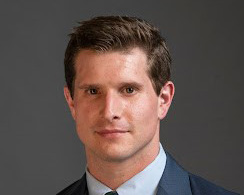
Eric Cortellessa has written that with Donald Trump running again for president, "a 2024 campaign … will be darker and more dangerous than anything Trump has authored to date."
The campaign was the subject of Cortellessa's talk titled "The Politics of Retribution: An Update on Congress and the 2024 Presidential Election."
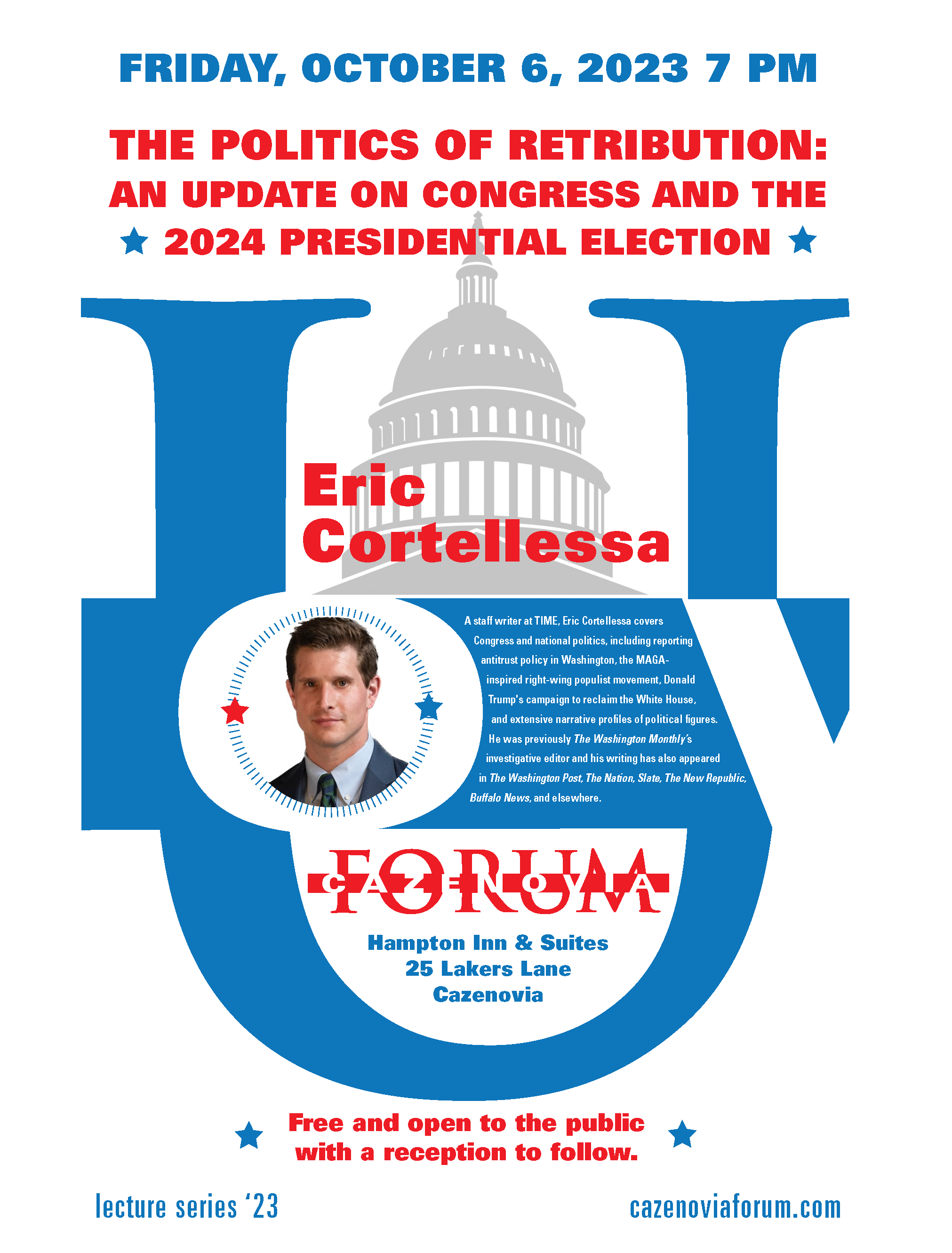 Cortellessa's talk addressed "how the theme of comeuppance has come to animate the modern GOP, and how it will be a dominant theme in the year ahead."
Cortellessa's talk addressed "how the theme of comeuppance has come to animate the modern GOP, and how it will be a dominant theme in the year ahead."
A staff writer at TIME who covers Congress and national politics, Cotellessa was previously the Washington Monthly's investigative editor. His writing has also appeared in the The Washington Post, The Nation, Slate, The New Republic, The American Prospect, the Buffalo News and elsewhere. VIEW 07SEP2023 PRESS RELEASE VIEW 25SEP2023 PRESS RELEASE VIEW REVIEW ARTICLE
Steven Pifer
"Russia's War Against Ukraine"
Supporting "not only morally the right thing to do," says Steven Pifer, "It is also very much in the US national interest." Pifer, former U.S. Ambassador to Ukraine, will discuss the current situation in Ukraine on Friday, May 5 in a presentation sponsored by the Cazenovia Forum.
His talk, "Russia's War Against Ukraine," was held at the Catherine Cummings Theatre, Cazenovia College, at 7 p.m.
More than a year after Russia invaded Ukraine, Pifer has written, "it is vital to recognize that continued US support for Ukraine in this war is both the morally correct position and serves key national interests of the United States." He notes that a Russian victory "would have a major negative impact on stability and security in Europe…. An insecure Europe would command more US resources, military power, and senior-level attention than would otherwise be the case."
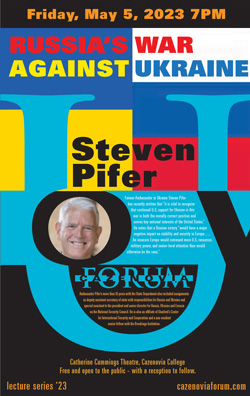
The United States has a strong interest in stopping Russia in Ukraine, Pifer says. "If Putin's ambitions were to extend to one or more of the Baltic states, which are members of NATO," he writes, "the United States would have to contribute money, weapons, and the lives of American soldiers. The United States has a strong interest in stopping Putin's ambitions in Ukraine."
Pifer's more than 25 years with the State Department also included assignments as deputy assistant secretary of state with responsibilities for Russia and Ukraine, and special assistant to the president and senior director for Russia, Ukraine and Eurasia on the National Security Council. He is now an affiliate of the Center for International Security and Cooperation at Stanford University as well as a non-resident senior fellow with the Brookings Institution.
Pifer has offered commentary on nuclear arms control, Ukraine, Russia and European security on National Public Radio, PBS NewsHour, CNN and BBC, and his articles have been published in a wide variety of outlets. He is the author of The Eagle and the Trident: U.S.-Ukraine Relations in Turbulent Times (Brookings Institution Press, 2017), and co-author of The Opportunity: Next Steps in Reducing Nuclear Arms (Brookings Institution Press, 2012).
Rick Reagan
"Navigating Markets in Uncertain Times"
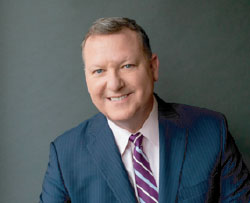
If you're feeling a little queasy about your financial future, you're not alone. A recent survey of more than 4,000 CEOs found that 73% of them believed global economic growth will decline over the next twelve months. The dismal news comes as we're still reeling from the 2022 bear market and with recession fears fueled by rising interest rates. But there is hope. In a program titled "Navigating Markets in Uncertain Times" was presented March 3 by the Cazenovia Forum, financial expert Rick Reagan spoke about what is likely to happen and how we can prepare for it. "Despite all the negative headlines," Reagan said recently, "the US remains far and away the best spot to invest in the world."
Reagan, founder of Reagan Companies Asset Management, appears on numerous media outlets in the Syracuse area. He has a daily segment on News Channel 9 (ABC) as their financial expert and several times a week can be heard on News Radio 570.
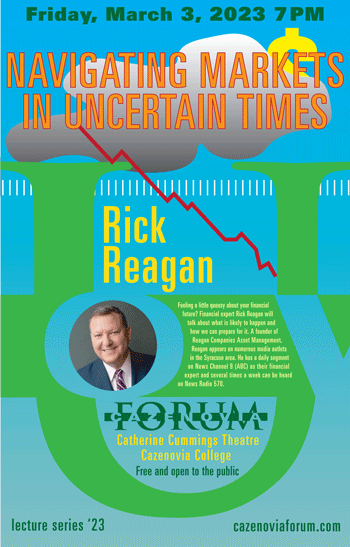 Reagan looked at what will happen with inflation and the Fed's response. He spoke of the odds of a recession and talked about ways to make money while still protecting one's downside.
Reagan looked at what will happen with inflation and the Fed's response. He spoke of the odds of a recession and talked about ways to make money while still protecting one's downside.
A departmental scholar in Economics at Potsdam College, Reagan received his MBA in Finance from Clarkson University. In 1996 he became a Certified Financial Planner and has served as an expert financial witness in multiple Financial Industry Authority arbitration hearings and mediations since 2003. His expert testimony has been recognized in the areas of asset allocation, distribution analysis, and Monte Carlo simulation.
"Navigating Markets in Uncertain Times" was presented at 7 p.m. at the Catherine Cummings Theatre, Cazenovia College. The presentation was free and open to the public and was be followed by a reception at the Lincklaen House.
View the video of Rick Reagan's talk.
Read the STUDENT REVIEW of Rick Reagan's talk.
2022 Speakers & Presentations
Mark Golden, CEO and co-founder of Golden Artist Colors
Cazenovia Welcomes Refugees, film "Utica: The Last Refuge"
Ty Seidule, Brigadier General and Professor Emeritus of History
Marc Polymeropoulos, CIA - retired
« HIDE DETAILS »
Mark Golden
"Can Capitalism Be Caring?"
Capitalism has been accused of many of things, but caring is not usually one of them. For more than 40 years, Mark Golden, CEO and co-founder of Golden Artist Colors, has been working in a business that cares about its employees and its community. But can capitalism itself be caring? Golden discussed this question as he reflected upon the modest beginnings of Golden Artist Colors in 1980 and how in 2021 the company became 100% employee owned with global sales in more than 60 countries.
"We have tried to create an environment where people can thrive," Golden says. "As a result, the company has flourished. We are so grateful for all the support and dedication shown by employees over the years, and becoming employee owned allows us to close the final loop for our staff. Not only will our employees act and feel like owners, but they will become true owners as well."
Presented in partnership by Cazenovia Forum and the Madden School of Business, Le Moyne College.
The presentation was free and open to the public.
Read the 12OCT2022 press release.
Links to video of Mark Golden's talk:
Read the STUDENT REVIEW of Mark Golden's talk.
View photos of Mark Golden's talk.
Cazenovia Welcomes Refugees
film "Utica: The Last Refuge"
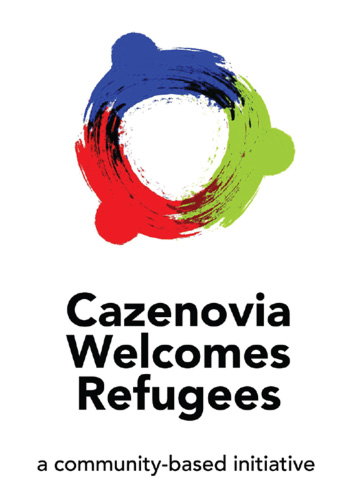
CAZENOVIA WELCOMES REFUGEES and CAZENOVIA FORUM were pleased to present a screening of UTICA: THE LAST REFUGE, a documentary produced by Off Ramp Films. Director Loch Phillips describes the film's development as a "passion project" which captures the spirit and commitment of the Mohawk Valley Resource Center for Refugees and the reinvention and transformation of Utica as a nationally-recognized model for refugee resettlement. Filmed over the course of four years, the film premiered in November of '21.
Nearly 30 million people worldwide are seeking refuge. Many of them were once prosperous and comfortable like you and me. Many others had little to leave behind but left what little they had. Nearly all were driven from their homes by war or famine or persecution or natural disasters. It's a massive, overwhelming problem and so difficult many of us just turn away in frustration.
But not everybody. Cazenovia Welcomes Refugees (CWR), an organization founded in 2016, has as its mission "to support Cazenovia as a welcoming community to refugees." CWR's first resettled family has been here for four years. A second family will have moved this June into a village home that was made available by Cazenovia College and that has been renovated by CWR.
To highlight the solutions possible to the refugee issue, CWR and the Cazenovia Forum presented a screening of the film "Utica: The Last Refuge" June 3 in the Catherine Cummings Theater, 16 Lincklaen Street. The event was free and open to the public.
Produced by veteran journalist and Utica native David Chanatry, the film tells the story of how refugees' presence in Utica has led to a cultural and economic revitalization of the community. It tells the stories of individual refugees and talks to experts who have compiled data that help explain a city that defies the conventional wisdom regarding refugees. Among the refugees' stories are those of a Bosnian hairdresser who started the first female-, refugee-owned business in the area; a Burmese grocer; a Bosnian with a thriving construction business; and a Burmese nurse practitioner.
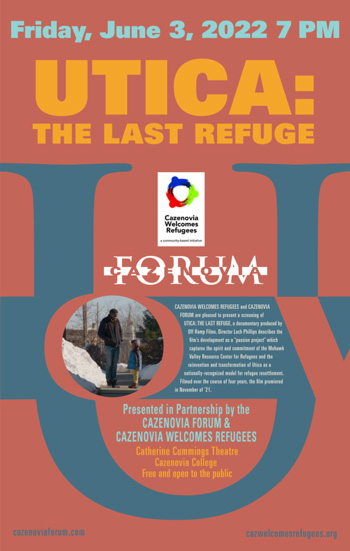
At the same time, the film follows the efforts of the Mohawk Valley Resource Center for Refugees (MVRCR) as the agency responds to constant changes in policy produced by executive orders and court rulings.
The film also talks to local politicians who extol the virtues of diversity in Utica and comment upon the hard work and dedication of the refugees. Local companies now work with MVRCR when they need employees and look optimistically on refugees as the stable workforce they previously lacked.
Following the film, representatives from the organizations involved with local refugee resettlement were available for a question-and-answer session.
CWR's steering committee was formed to work in partnership with the Center for New Americans program of Interfaith Works of Syracuse. CWR has organized educational community events to create greater awareness of the realities of the global refugee crisis and the issues faced by refugees as they become integrated into our American communities. More information on CWR can be found at: https://cazwelcomesrefugees.org/index.html
Ty Seidule
"ROBERT E. LEE AND ME: A Southerner's Reckoning with the Myth of the Lost Cause" - biography
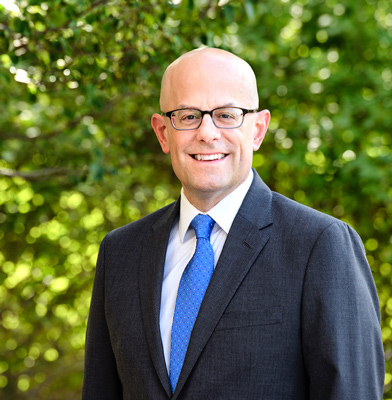
Ty Seidule was raised worshipping Robert E. Lee and the lost cause of the Confederacy.
"I grew up with a series of lies that helped further white supremacy," says the retired Brigadier General and Professor Emeritus of History at West Point. But as a historian, his view has changed drastically. Now he says that American history demands a reckoning.
The Cazenovia Forum presented Gen. Seidule in a free public talk Friday, March 4 at 7 p.m. in the Catherine Cummings Theatre, 16 Lincklaen Street, Cazenovia, NY.
Seidule's talk, Robert E. Lee and Me, A Southerner's Reckoning 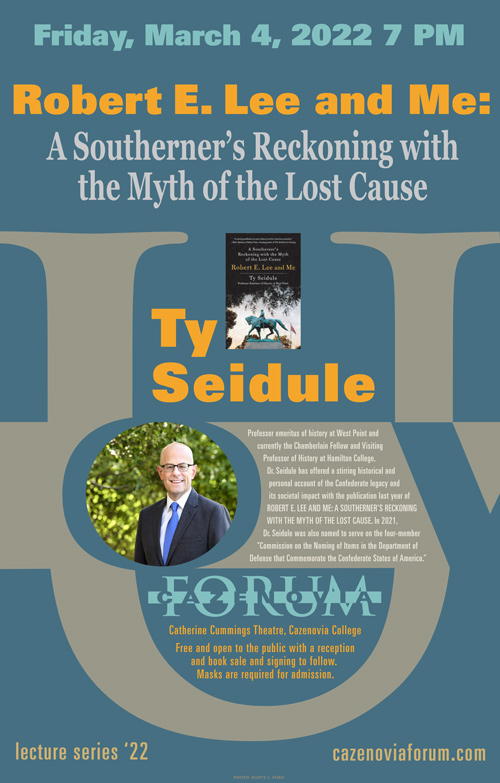 with the Myth of the Lost Cause, takes its title from his book of the same name. The book, released in 2021, just came out in paperback. It is a personal account of growing up in the South and how he came to grips with the history of Lee and the Civil War. In a recent interview with The History News Network, he explained how he came to write the book: "In 2017, Washington and Lee University invited me to give a talk in Lee Chapel, where Robert E. Lee is buried," he said. "I told my story and called Lee a traitor for slavery. The audience gave me a standing ovation. I realized that if I was honest about my own story, I might be able to convince others about the facts of the Civil War and the Lost Cause more readily. So, I decided to do what few historians do. Use my own story to try to reach a broader audience."
with the Myth of the Lost Cause, takes its title from his book of the same name. The book, released in 2021, just came out in paperback. It is a personal account of growing up in the South and how he came to grips with the history of Lee and the Civil War. In a recent interview with The History News Network, he explained how he came to write the book: "In 2017, Washington and Lee University invited me to give a talk in Lee Chapel, where Robert E. Lee is buried," he said. "I told my story and called Lee a traitor for slavery. The audience gave me a standing ovation. I realized that if I was honest about my own story, I might be able to convince others about the facts of the Civil War and the Lost Cause more readily. So, I decided to do what few historians do. Use my own story to try to reach a broader audience."
Seidule served in the U.S. Army for 36 years and taught history for two decades at West Point. He is the Chamberlain Fellow at Hamilton College as well as a New America Fellow. Secretary of Defense Lloyd Austin appointed Seidule to the National Commission on Base Renaming.
He has published numerous books, articles, and videos on military history including the award-winning West Point History of the Civil War. He graduated from Washington and Lee University and holds a PhD from the Ohio State University.
The presentation was free and open to the public and was followed by a reception at the Lincklaen House where copies of Seidule's books were available. Masks were required at the presentation.
Marc Polymeropoulos
"Clarity in Crisis: Leadership Lessons from the CIA"
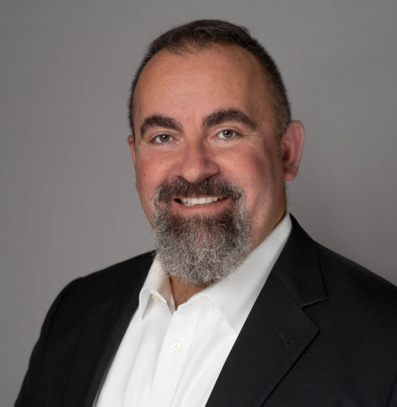
“The Glue Guy," “The Process Monkey," and “Employ the Dagger" are just some of the leadership concepts Marc Polymeropoulos explains in his book Clarity in Crisis: Leadership Lessons from the CIA. Once you read them you are not likely to forget them.
Polymeropoulos spoke about his ideas on commanding a team or an operation under difficult circumstances at a Cazenovia Forum presentation Friday, April 29 at 7 p.m. in the Catherine Cummings Theatre, 16 Lincklaen Street, Cazenovia, NY.
Polymeropoulos has had to live with the consequences of decisions made under the most high-stress circumstances you can imagine as a senior intelligence officer in the CIA, retiring from his 26 years of service as one of the CIA's most decorated field officers.
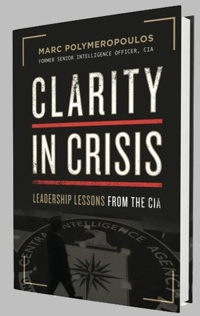
Your own crisis situations may not entail international counter terrorism as Marc's did, but in our age of social media and a 24-hour news cycle, the consequences of mishandling an urgent situation can escalate quickly, leaving irreparable damage to an institution's or individual's reputation and standing, and may even result in legal and/or financial consequences in its wake.
Polymeropoulos retired in 2019 from the Senior Intelligence Service ranks at the CIA after a career in operational headquarters and field management assignments covering the Middle East, Europe, Eurasia, and Counter Terrorism. He served in Iraq and Afghanistan, and is the recipient of the Distinguished Career Intelligence Medal, the Distinguished Intelligence Medal, the Intelligence Medal of Merit, and the Intelligence Commendation medal. His last position was overseeing CIA's clandestine operations in Europe and Eurasia. He is a respected commentator on foreign policy and intelligence matters and is widely quoted in both the US and international media.
The presentation was held April 29th and was free and open to the public. It was followed by a reception at the Lincklaen House where copies of Polymeropolos' books were available.
Links to video of Mark's talk:
View photos of Mark Polymeropoulos's talk.
2021 Speakers & Presentations
Phoebe Schreiner, Executive Director - Center for Agricultural Development and Entrepreneurship
Dr. Adam Frank, Astrophysicist
Andy Pattison & Sharon Anderson, Colgate University & Ecologic, respectively
Shannon R. Magari, Visiting Scientist at Harvard TH Chan School of Public Health & a principal owner of Colden Corporation
« HIDE DETAILS »
Phoebe Schreiner
"America Needs a New Foodshed; New York is the Answer!" - Step aside, California. Phoebe Schreiner hopes New York State will become the food basket of the Northeast.
Schreiner, who spoke at the Cazenovia Forum Friday, November 2021 via Zoom, is executive director of the Center for Agricultural Development and Entrepreneurship. She sees the double whammy of growing populations and climate change as presenting a challenge and an opportunity for growers in the Northeast. She believes that by strengthening food and farm businesses across the state and improving the food supply chain, we can feed the region.
Schreiner has 20 years of global-to-local experience leading social and economic development programs around the world--from the former Soviet Union, to the Middle East, to South Asia, and to New York--including with the U.S. Agency for International Development (USAID), the United Nations, the Open Society Foundations, among others.
She is a currently a member of Congressman Antonio Delgado's Agricultural Advisory Committee for the 19th Congressional District, the Otsego County Agriculture and Farmland Protection Committee, the Farm-to-School Task Force of Delaware County, the Otsego County Energy Task Force Sub-Committee on Economic Development, Technical Committee of the Northeast Sustainable Agriculture Research and Education, the Schoharie County Land Trust, and Gilboa Historical Society.
For a sample of her ideas, go to: https://www.ted.com/talks/phoebe_schreiner_why_america_needs_a_new_foodshed
View video of Phoebe's presentation
Dr. Adam Frank
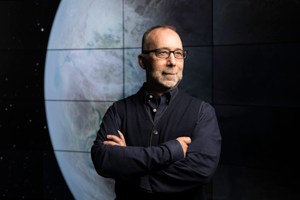
"The Future of Life on Earth and Everywhere Else" - Everyone talks about saving the earth, but Dr. Adam Frank thinks we have it wrong. "It's not the earth, that needs saving, it's us," he writes. Frank spoke about this and other ideas Oct. 1 at 7 p.m. in a virtual presentation by The Cazenovia Forum.
Frank, an astrophysicist and a leading expert on the final stages of evolution for stars, will speak on "The Future of Life on Earth and Everywhere Else."
In his 2018 book, Light of the Stars: Alien Worlds and the Fate of the Earth, Frank writes that we are not necessarily the collective villains in the story of climate change, "but we may collectively become losers."
His current work focuses on life in the universe, the search for "technosignatures" of other exo-civilizations along with climate change and the "Astrobiology of the Anthropocene".
He suggests that it is logical to believe that there have been countless civilizations similar to ours throughout the universe and throughout time. They, too, must have confronted challenges to their existence. Whatever we can learn about these exo-civilizations and their survival (or demise), even if it is only theoretical, may be able to help us cope with our own climate crisis here on Earth
A self-described "evangelist of science," he is committed to showing others the beauty and power of science, and exploring the proper context of science in culture. Light of the Stars received praise from the New York Times, NPR and Scientific American. He has written two other books, The Constant Fire: Beyond the Religion and Science Debate, and About Time: Cosmology and Culture at the Twilight of the Big Bang.
Frank is a regular on-air commentator for NPR's All Things Considered and was co-founder of National Public Radio 13.7: Cosmos and Culture blog which ran for seven years and garnered millions of distinct views. He is also a contributor to the New York Times, The Atlantic and other media outlets. He currently runs the 13.8 blog on BigThink.com. He was also the science consultant for Marvel's 2016 movie, Doctor Strange starring Benedict Cumberbatch and Tilda Swinton.
Frank has received a number of awards for his scientific and outreach work. Light of the Stars won the 2019 National Honors Society Best Book in Science. In 2020 he was given the American Physical Society's Joseph A. Burton Forum Award. In 2021 he was granted the Carl Sagan Medal for excellence in public communication by the American Astronomical Society.
You can find out more about his work at his website, https://www.adamfrankscience.com/
Andy Pattison and Sharon Anderson
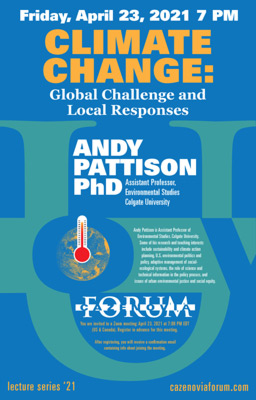
"CLIMATE CHANGE: Global Challenge & Local Response" - Cazenovia Forum's event in April 2021 was part of the Greater Cazenovia Earth Week celebration. Our virtual event featured a discussion between Colgate University professor Andy Pattison and Sharon Anderson, of EcoLogic in Cazenovia. Andy and Sharon discussed how local communities and local government can plan for climate change including roles, opportunities, examples of best practices, available resources and tools, and public engagement.
Andy Pattison is Assistant Professor of Environmental Studies, Colgate University. Some of his research and teaching interests include sustainability and climate action planning, U.S. environmental politics and policy, adaptive management of socialecological systems, the role of science and technical information in the policy process, and issues of urban environmental justice and social equity.
The event took place via Zoom. The meeting was free and open to the public.
Shannon R. Magari
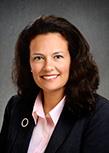
"The Science of COVID-19: Controls, Testing, Vaccines, and What Lies Ahead" - Dr. Magari, Visiting Scientist at Harvard TH Chan School of Public Health and a principal owner of Colden Corporation, will discuss which control strategies we need to keep, which ones we can eliminate and what we should think about adding as we navigate through another year of the pandemic. She reviewed the current state of testing, what public health professionals are hoping for and where it will fall throughout 2021. She spent a significant portion of the presentation to the COVID19 vaccines and explain how the vaccine platforms work and what the safety and efficacy data say.
Dr. Magari serves as the Vice President of Health Sciences and co-chair of the litigation support practice with Colden Corporation. Over the past year Dr. Magari and her team have helped develop COVID 19 safety plans and conducted workplace audits to protect those working in industries ranging from energy production and distribution, to healthcare, to food, pharmaceutical and television production. Dr. Magari holds a Doctor of Science in Environmental Health from Harvard University with a concentration in Occupational Epidemiology. She currently serves as the President of the Northeast Biological Safety Association.
The presentation was free and open to public and was streamed via Zoom.
« HIDE DETAILS »
2020 Speakers & Presentations
Documentary, "Driving While Black"
John Zogby, Election 2020: The Intersection Between Cultural Values and Political Behavior
« HIDE DETAILS »
Documentary - "Driving While Black"
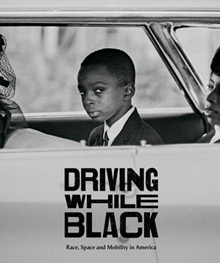
WCNY aired DRIVING WHILE BLACK: RACE, SPACE, AND MOBILITY IN AMERICA - a ground-breaking two-hour documentary film by acclaimed historian Dr. Gretchen Sorin and Emmy-winning director Ric Burns - on Tuesday, October 2020. The documentary focuses on the history and personal experiences of African Americans as they travel on the road from the advent of the automobile through the 1960's and beyond. The film is based on Gretchen Sorin's book Driving While Black: African American Travel and the Road to Civil Rights.
More information about the film can be found at http://www.dwbfilm.com/.
Information on Ric Burns' Steeplechase Films can be found at https://www.ricburns.com/.
To purchase Gretchen Sorin's book and support PBS at the same time, please consider visiting https://shop.pbs.org/WC9292.html.
John Zogby
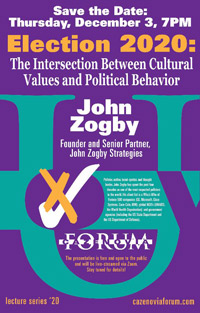
"Election 2020: The Intersection Between Cultural Values and Political Behavior" - “Election Day 2020 was the end of a very bad cycle for the media and university pollsters,” John Zogby wrote recently in the Miami Herald. “It is time for a serious self-assessment of what went wrong with those polls.”
The Cazenovia Forum, in partnership with Utica College, will present Zogby and his analysis of the 2020 election Thursday, December 3. Zogby, founder and senior partner of John Zogby Strategies, has been one of the most respected pollsters in the world for more than 40 years. He has worked nationally and internationally providing information to governments, Fortune 500 companies, small non-profits, the United Nations, and political candidates from the local sheriff to the U.S. presidency.
Zogby has criticized the polling industry for “an unwillingness to adapt to new technologies,” which resulted in so many polls getting it so wrong, both in 2020 and 2016. Polls showing a double-digit lead for Joe Biden “were seriously misleading,” Zogby wrote.
« HIDE DETAILS »
2019 Speakers
Michael Nerney, Consultant in substance abuse prevention and education
Emily Hanford, Award-winning reporter and editor
Cailin O'Connor, Professor of logic and philosophy of science at the University of California, Irvine
Documentary preview - "The Last Refuge"
« HIDE DETAILS »
Michael Nerney

"The Adolescent Brain for Parents" - Michael Nerney is a consultant in substance abuse prevention and education, with over thirty-nine years of experience in the field with a special focus on psychopharmacology and adolescent chemical dependency. He is the former Director of the Training Institute of Narcotic and Drug Research and worked as a training specialist for the National Development and Research Institutes.
Mr. Nerney meets with students at middle schools, high schools, and colleges to assist him in developing training programs for school administrators, counselors, teachers, and parents. He has worked with the U.S. Department of Justice on programs to aid communities in their response to the opioid crisis. He has been a consultant for two of the major television networks and appeared on the ABC program "20/20."
Emily Hanford
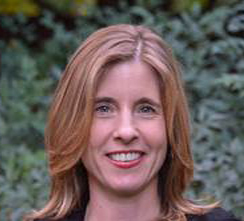
"Hard Words AboutHow We Teach Kids to Read: What One Reporter Has Learned From Three Years Reporting Across America" - Emily Hanford is an award-winning reporter and editor who has been covering education full time since 2008. She is a senior correspondent for APM Reports, the documentary and investigative reporting group at American Public Media. Her work has appeared in The New York Times, the LA Times, NPR, PBS NewsHour, and Washington Monthly. She is the producer of the audio documentaries "Hard Words: Why Aren't Kids Being Taught to Read?" and "Hard to Read: How American Schools Fail Kids With Dyslexia." She is working on another documentary about reading to be released in August 2019.
Cailin O'Connor
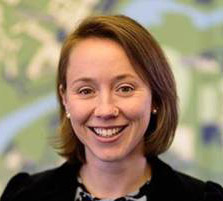
"The Misinformation Age: The social dynamics of 'alternative facts': why what you believe depends on who you know" - Cailin O'Connor is co-author of The Misinformation Age, about "fake news," "alternative facts," and disputes over the validity of everything from climate change to the size of inauguration crowds. It tells us that what we believe depends on who we know. If social forces explain the persistence of false belief, we must understand how those forces work in order to fight misinformation effectively. Prof. O'Connor teaches logic and philosophy of science at the University of California, Irvine.
« HIDE DETAILS »
2018 Speakers
Susan Arbetter, Emmy Award-winning host and producer of The Capitol Pressroom radio program
Nancy Ries, Professor of Anthropology and Peace and Conflict Studies at Colgate University
Frank Montoya Jr., Retired FBI special agent
Mike Nunes, Vice President, Current Programming, NBC Universal
Comedy Improv Performance
Michael R. Twiss, Professor of biology at Clarkson University
« HIDE DETAILS »
Susan Arbetter
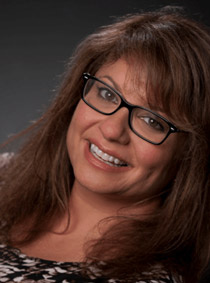
"The Midterms, #metoo, and Mobilization: How What's Happening in DC Could Transform Albany" - President Trump had already mobilized women to run for office; now the controversy around Judge Kavanaugh has mobilized women to vote. This energy may change some State Senate races that were never in play into probable Democratic wins. Susan explained why suburban women are key here and look into how a future with a Democratic-controlled State Senate — and a lame duck Governor looking for a legacy — could change the political landscape of New York State.
Susan Arbetter is the Emmy Award-winning host and producer of the syndicated public radio program The Capitol Pressroom, which broadcasts live weekdays from Albany and boasts a daily audience of 100,000 listeners. She is also Director of News & Public Affairs for WCNY. Buffalo Rising described Ms. Arbetter as an "interviewer extraordinaire.
She is the recipient of over 30 awards for electronic journalism, including an Emmy Award for Best Public Affairs Series for the television show Insight and four Emmy nominations for Connect: NY. The Capitol Pressroom was awarded the 2016 NYSBA Award for Community. The Women's Press Club's bestowed to Ms. Arbetter their "Excellence in Career Achievement Award." She has been named to City & State's Annual Power 100 list every year for the past four years.
Susan lives on a hill in Altamont, NY with her husband.
Nancy Ries
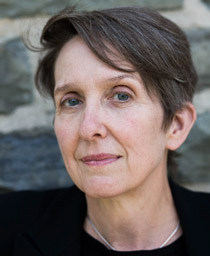
"Thugocracy: Oligarchs, Mafias, the Kremlin & the Trump Presidency" - Nancy Ries is Christian A. Johnson Chair in Liberal Arts Studies, Director of the Division of University Studies, and Professor of Anthropology and Peace and Conflict Studies at Colgate University. Her specialty is contemporary Russia. She is fluent in Russian and has done extensive field research in Moscow and other cities since the 1980s.
Among her publications are the 1997 book, Russian Talk: Culture and Conversation during Perestroika, which won the Barbara Heldt Book Prize, and a 2009 article "Potato Ontology: Surviving Post-Socialism in Russia which won the Cultural Anthropology Horizons Prize. She has published on state capture and the Russian mafia, everyday life theory and traumatic violence, and nuclear weapons discourse, She is currently researching the Kremlin's nuclear saber-rattling after the takeover of Crimea, and is writing a book on thugocracy for Cornell University Press.
Frank Montoya
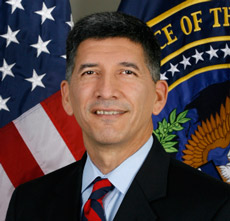
"FBI Under Siege" - Frank Montoya Jr. is a retired FBI special agent with extensive experience in national security matters, having recently served as the government's top counterintelligence official under the Director of National Intelligence. In his 25-year career with the FBI, Mr. Montoya worked to counter violent crime, assisted in the Robert Hanssen spy case, the Alfred P. Murrah Federal Building bombing investigation and the establishment of the National Cyber Investigative Joint Task Force. He served as Special Agent in Charge of the FBI's Seattle and Honolulu field offices. His views are regularly sought out by major news networks and publications. Montoya received a Bachelor of Arts degree in journalism from Brigham Young University and served in the U.S. Army as an infantry officer. He lives with his wife in Utah.
Montoya is highly critical of politicians attacking the FBI in connection with the ongoing Russia collusion investigation, having recently told Washington Monthly, "The baseless, unsubstantiated assaults coming from the ultra-conservative wing of Congress not only risks undermining public trust, which the FBI is dependent upon to do its job, but puts the rule of law at risk.
Mike Nunes
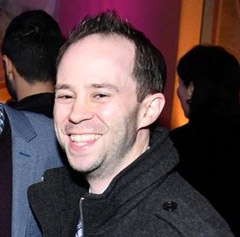
"Framing the Story from the Outside In" - Mike Nunes is the NBC Universal executive who shepherded the award-winning and critically-acclaimed television series "This is Us."
As Vice President of Current Programming for NBC Entertainment, Nunes has handled some of the biggest, most popular and well-reviewed shows in television. In addition to "This Is Us," which has become a national phenomenon since its launch in 2016, he has overseen "The Good Place," from esteemed comedy showrunner Michael Schur, "Superstore," starring America Ferrera and, most recently, "Rise," from "Friday Night Lights" and "Parenthood" executive producer Jason Katims.
Comedy Improv Performance
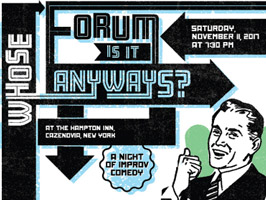
Comedy Improv Took the Stage at Cazenovia Forum Fundraiser - A comedy improv performance in the style of the popular television show Whose Line is it Anyway? was the centerpiece of the biennial fundraising gala for the Cazenovia Forum lecture series. The entertainment for the evening was provided by the long-running improv troupe"Eight is NEVER Enough,"comprising New York City performers and artists dedicated to captivating audiences through old-school improv comedy entertainment.
Michael R. Twiss
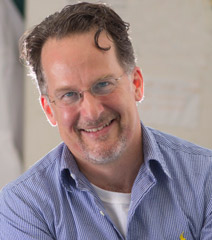
"What Would an Early Warning System Look Like for the Great Lakes?" - Michael R. Twiss, Ph.D., is a professor of biology at Clarkson University, teaching classes in Limnology, Microbiology, Environmental Science of the Adirondacks, and Great Lakes Water Protection. He is a member of the Frontiers in Aquatic Microbiology editorial board and has served on grant review panels for the U.S. National Science Foundation (NSF), Natural Sciences and Engineering Research Council (NSERC), and other agencies.
Twiss is a limnologist (freshwater scientist) with expertise in the microbial plankton ecology of the Great Lakes-St. Lawrence River system and interactions of plankton with trace elements in the water column. His research aims to understand the impact that microbes have on the geochemical fate of nutrients and metals in natural waters and how plankton respond to changes in their natural environment.
He is the recipient of the Governor General of Canada Gold Medal for Academic Excellence, the Premier's Research Excellence Award by the Province of Ontario and the Chandler-Misener Award by the International Association for Great Lakes Research, and has been funded in the past five years by New York Sea Grant, the New York Power Authority, the NSF, the USEPA Great Lakes National Program Office and the Syracuse Center of Excellence in Environmental and Energy Systems. Twiss has over 50 peer-reviewed publications."
« HIDE DETAILS »
2017 Speakers
Michael Twiss, Director of the Great Rivers Center at Clarkson University
Mark Storella, Member of the Senior Foreign Service
Sarah Davidson Evanega, Plant scientist and Cornell University professor
John M. "Mike" McConnell, Vice Admiral (Retired)
« HIDE DETAILS »
Michael Twiss

Dr. Twiss' research focuses on the interactions of microbes with nutrients and toxic substances in lakes and rivers, with particular focus on the Great Lakes and St. Lawrence River ecosystems. As director of the Great Rivers Center he is involved in the REASON Project, which is using a network of water quality sensors to understand how water level regulation schemes influence and impact water quality, pollution tracking and fish migration.
Mark Storella
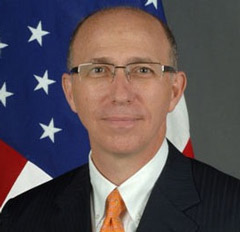
Ambassador Mark Storella, a member of the Senior Foreign Service, has a longstanding commitment to humanitarian affairs and human rights. He joined the Bureau of Population, Refugees and Migration in June 2016 with responsibility for admission of refugees to the United States and refugee programming in the Near East and Asia regions.
Ambassador Storella previously served as Deputy Chief of Mission at Embassy Brussels where he was deeply involved in counterterrorism and countering violent extremism efforts. As U.S. Ambassador to Zambia 2010-2013, he oversaw $450 million in development assistance, with a focus on innovative health and governance programs. Ambassador Storella was the Senior Coordinator for Iraqi Refugees and Internally Displaced Persons in Baghdad from 2009-2010 and served as Counselor for Refugee and Migration Affairs and subsequently as Deputy Permanent Representative at the U.S. Mission in Geneva from 2006-2009. In that capacity, he engaged with over 50 UN agencies and international organizations, including the UN High Commissioner for Refugees, the International Committee of the Red Cross, the International Organization for Migration and the International Federation of the Red Cross. From 2001-2003, Ambassador Storella was adjunct professor at Georgetown University where he taught graduate and undergraduate courses on humanitarian action.
Ambassador Storella was Deputy Chief of Mission in Cambodia and Executive Assistant to the Counselor of the State Department; he also served on the Japan and NATO desks and was posted in Bangkok, Paris and Rome.
Ambassador Storella is the recipient of several State Department Superior and Meritorious Honor awards. He is also the recipient of the Thomas Jefferson Award presented by American Citizens Abroad and the Centers for Disease Control and Prevention's Excellence in Service Award. His languages are French, Khmer, Italian and Thai. He is a graduate of Harvard College and the Fletcher School of Law and Diplomacy and has written on such diverse topics as multilateral arms control and humanitarian action in conflict situations. Ambassador Storella is married with two sons.
Sarah Davidson Evanega
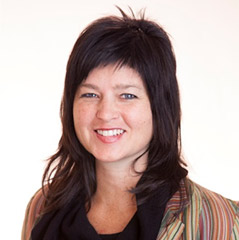
Professor Evanega is a plant scientist and Cornell University professor who is a leading supporter of genetic engineering as a key tool to promote global food security and protect habitats, spoke on "GMOs: Fostering a Climate for Change."
As Director for the Cornell Alliance for Science, Evanega oversees a global communications effort that promotes evidence-based decision-making in agriculture. She is also part of an interdisciplinary team that recently started up an online course on the science and politics of GMOs at Cornell University.
Polls show that many Americans are concerned about the presence of GMO's in the food supply. A 2015 Pew Research Center study found that 37 percent of American adults considered genetically modified foods to be unsafe while 88 percent of AAAS scientists had the opposite view.
Evanega points out that as global climate change continues to threaten agricultural systems, particularly in developing countries, crops that are genetically engineered to withstand harsh weather conditions or damage from insects are going to be critical to raising farm productivity and minimizing the negative impacts of agriculture on the environment, as well as addressing global food insecurity as the world's population continues to expand.
Vice Admiral (Ret.) John M. "Mike" McConnell
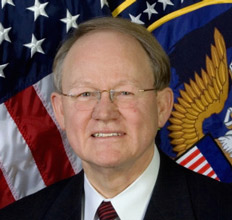
"Cyber Security & Cyber Warfare" - President George W. Bush named Vice Adm. McConnell to become the second Director of National Intelligence in 2007. In that role, he managed the 17-agency, 100,000-person national Intelligence Community, working closely with the White House, Cabinet, Congress, international leaders, and the business community. From 1992 to 1996, McConnell served as Director of the National Security Agency (NSA). He led NSA as it adapted to the multi-polar threats brought about by the end of the Cold War. Under his leadership, NSA provided global intelligence and information security services to the White House, Cabinet officials, the United States Congress, and a broad array of military and civilian intelligence agencies. He also served as a member of the Director of Central Intelligence senior leadership team. In 1996, McConnell retired from the Navy as a vice admiral after 29 years of service – 26 as a career Intelligence Officer. He holds the nation's highest award for service in the Intelligence Community. Adm. McConnell also served as the Chairman of the Intelligence and National Security Alliance. He is currently Vice Chairman at Booz Allen Hamilton.
« HIDE DETAILS »
2016 Speakers
Stephen Yale-Loehr, Professor of immigration law practice at Cornell Law School
Dr. Mark Polhemus, Director of the Center for Global Health and Translational Science at SUNY Upstate Medical University
Carrie Keating, Psychologist and nationally-known expert on non-verbal communication
Allen Raymond, Lobbyist and former top GOP operative
« HIDE DETAILS »
Stephen Yale-Loehr
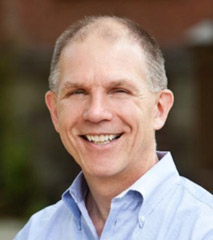
Stephen Yale-Loehr, one of the nation's preeminent authorities on U.S. immigration and asylum law, discussed the country's immigration system, how it works and the high-profile criticisms of it. He is frequently interviewed in print and broadcast media, including the Wall Street Journal, the New York Times, Fox News, CBS News and PBS. He has written four standard reference texts on immigration law and is a professor of immigration law practice at Cornell Law School.
Dr. Mark Polhemus
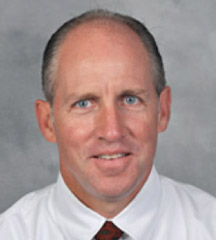
Dr. Mark Polhemus, the Director of the Center for Global Health and Translational Science at SUNY Upstate Medical University in Syracuse, spoke on "Bugs, Bites and Beasts: Global Disease on Your Doorstep." He is an authority on mosquito-borne diseases who is working on a defense against dengue fever.
Polhemus is working with a grant from the U.S. Army to build a new defense against dengue fever, a tropical disease carried by mosquitoes that annually affects more than 400 million people worldwide,100 million of them with serious illness. According to the U.S. Centers for Disease Control, more than a third of the world's population lives in areas where they are at risk for dengue infection.
Nearly 700 million people get a mosquito borne illness each year, resulting in greater than one million deaths. Recently, the director of the U.S. National Institute of Allergy and Infectious Diseases said that the United States is likely to see outbreaks of the Zika virus, another mosquito-borne disease, with perhaps dozens or scores of people affected. The U.S. has seen more than 350 cases of people who were infected abroad and then returned to the country but has yet to confirm a case where someone was infected within its borders.
Polhemus has a broad area of expertise in translational science (evaluation of drugs and vaccines), clinical infectious disease, and development of overseas research platforms. He spent 23 years in the military, with the last 10 years focused on developing vaccines and drugs for diseases affecting the deployed warfighter including leishmaniasis and malaria.
Currently he is the principal investigator on multiple DOD and pharma sponsored trials evaluating dengue and rabies vaccines.
Carrie Keating
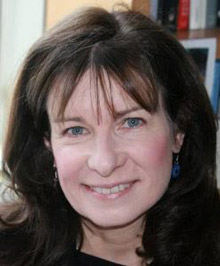
The Cazenovia Forum took a "deep dive" into the ways political leaders tap the roots of human nature as psychologist Carrie Keating, a nationally-known expert on non-verbal communication, took the lectern to give her thoughts on the candidates.
Keating, the chair of the psychology department at Colgate University,
Keating researches the nonverbal skills and physical appearances associated with social dominance, leadership, and charisma in children and adults. She has found, for example, that humans convey dominance through facial expressions akin to those of other primates, and that facial features which make people appear powerful also make them seem untrustworthy.
When it comes to political candidates, Keating says "it's not what you say, it's how you say it, and even how you present physically before you say anything at all."
Her studies have been featured in the print media and on radio, and she has appeared on numerous television shows including Scientific American Frontiers, Dateline NBC, The Oprah Winfrey Show, and ABC's Good Morning America and What Would You Do? Keating's presentation focused on current and previous candidates in the current election cycle and particularly on how her research reveals the ways political leaders impress, persuade, charm and ultimately cultivate devoted followers.
Allen Raymond
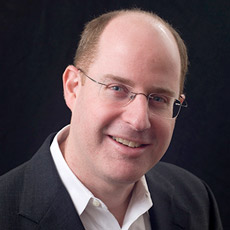
Allen is the author of the 2008 book How To Rig an Election: Confessions of a Republican Operative, which the New York Times said "paints a picture of the corruption of modern politics that should leave no doubt about the creativity and cynicism of operatives like Mr. Raymond or the need for tough new election-reform legislation." Raymond's presentation focused on the 2016 elections and dirty tricks to watch for in swing states from both the major political parties, as well as a look at campaign mechanics and the ways that observers can assess a campaign's viability.
Raymond spent three months in federal prison for his role in the 2002 New Hampshire U.S. Senate election phone jamming scandal, in which he paid a small Idaho telemarketing company to make non-stop hang-up phone calls to phone lines that were being used by Democrats in their get out the vote operations. Prior to this, Raymond spent nearly a decade working to elect Republican candidates, first at the state and then the national level. He has served in the positions of chief of staff to a Member of Congress, chief of staff to a co-chairman of the Republican National Committee, Regional Political Director for the RNC and National Republican Senatorial Committee, deputy political director for Forbes for President, executive director of the New Jersey Republican State Committee and Republican Leadership Council and has managed several state legislative and congressional campaigns.
Currently he lobbies on behalf of labor unions including the Communications Workers of America, assisting them with Republican lobbying efforts on multiple issues, including trade, telecommunications, Senate Rules reform and various labor union specific legislative issues. Raymond holds a Bachelor of Arts from Hobart College and a Master's Degree from the Graduate School of Political Management at George Washington University. He serves on the Board of Advisors of the GSPM's Advocacy in the Global Environment program and is a trustee of the John T. Underwood Charitable Foundation, which supports not-for-profit community based organizations in Brooklyn, New York.
« HIDE DETAILS »
2015 Speakers
Gabriel Sayegh, Director of the New York State office of the Drug Policy Alliance
Adrian Karatnycky, Senior Fellow at the Atlantic Council
John Rizzo, Career CIA officer
Zephyr Teachout, Constitutional law professor at Fordham Law School
« HIDE DETAILS »
Gabriel Sayegh
Gabriel Sayegh is director of the New York State office of the Drug Policy Alliance. The Drug Policy Alliance (DPA) is the nation's leading organization promoting drug policies that are grounded in science, compassion, health and human rights. The organization works to advance the proposition that the war on drugs is doing more harm than good and promotes alternative policies to reduce the harms of both drug use and drug prohibition.
As DPA's New York director and campaign leader, Sayegh partners with community organizing groups, human service agencies and researchers. Recent campaigns include ending New York's marijuana arrest crusade, developing municipal-based drug strategies, passing and implementing historic 911 Good Samaritan legislation to prevent accidental overdose fatalities, creating a tightly-regulated medical marijuana program, and reforming New York's draconian Rockefeller Drug Laws.
Adrian Karatnycky
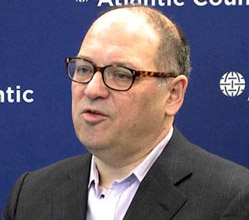
Adrian Karatnycky is a Senior Fellow at the Atlantic Council. The crisis in Ukraine began with anti-government demonstrations in November 2013 when pro-Moscow President Viktor Yanukovych's government abandoned a deal with the European Union in favor of stronger ties with Russia. The street protests led to Yanukovich's resignation and the formation of a new government, following which Russia invaded and annexed the Crimean Peninsula, a move largely condemned by the international community. Since then, and despite a recent ceasefire agreement, fighting between Ukrainian government forces and Moscow-supported separatists has continued in the eastern part of the country, with more than 6,000 people dead and more than 1.5 million displaced.
The co-author and editor of more than 20 books on East European and human rights topics, Karatnycky is widely regarded as one of the nation's top analysts on the situation in Ukraine. His writings regularly appear in Foreign Affairs magazine, The Wall Street Journal, Washington Post, New York Times and other periodicals. He also appears regularly on the PBS NewsHour and on MSNBC's The Last Word with Lawrence O'Donnell.
For more than a decade he was president of Freedom House, major pro-democracy and economic reform organization, where he headed its widely-known survey of Freedom in the World and developed and supervised the Nations in Transit survey that annually monitors the post-Communist transition. He had earlier served as Assistant to the President of the AFL-CIO, where in the 1980s he was responsible for coordinating assistance to Poland's Solidarity and other underground opposition movements of Central and Eastern Europe that were ultimately successful their efforts to break free from the Soviet Union.
Karatnycky has also served as co-director of the U.S. Council on Foreign Relations Task Force on the US and the United Nations (2003-4), as co-director of the first World Forum on Democracy (2000), and was a member of the United Nations Blue Ribbon Commission on Ukraine (2005).
John Rizzo
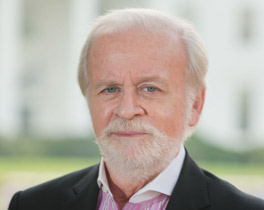
Over a 34 year career with the CIA, John Rizzo made sweeping legal calls on virtually every major issue facing the spy agency, from rules governing waterboarding, "enhanced interrogation" and drones to answering for the Iran Contra scandal. Rizzo is the author of Company Man: Thirty Years of Controversy and Crisis in the CIA, a narrative of his rise from junior lawyer to chief legal counsel that parallels the transformation of the CIA itself from cloak-and-dagger Cold War bureaucracy to a multi-faceted anti-terrorism enterprise. During this time, the agency became exposed to new laws, rules, and a seemingly never-ending string of public controversies. The book has received critical acclaim for its candid, insider's look at American intelligence.
According to NBC News Chief Foreign Correspondent Richard Engel, "Company Man reads like the CIA's conscience: what the CIA was thinking as it shifted from collecting information to killing terrorists after 9/11? Why did the CIA violently interrogate suspects and then destroy the evidence? Rizzo knows, and he's talking."
Rizzo was hired at the CIA in 1976 and by 1979 he became the staff lawyer for the Directorate of Operations, the CIA's clandestine branch. He served as the liaison between the CIA and the congressional investigators studying the Iran-Contra affair in the 1980s. In November 2001, he was named Acting General Counsel, a position in which he served from late 2001 to late 2002 and from mid-2004 until late 2009. In the interim period he served as Deputy General Counsel.
The Bush administration nominated Rizzo as General Counsel of the CIA in mid-2007, but Democratic Senator Ron Wyden blocked his confirmation by the Senate Intelligence Committee due to his involvement in approving the CIA's interrogation practices during the war on terror. The Bush administration withdrew his nomination, but kept Rizzo as Acting General Counsel until his retirement in October 2009.
Rizzo received the Thomas C. Clark Award from the Federal Bar Association and the Distinguished Career Intelligence Medal, the highest recognition awarded to a career CIA officer.
Zephyr Teachout

Zephyr Teachout, a constitutional law professor at Fordham Law School and one of the nation's leading legal experts on corruption, is best known for her efforts to limit the influence of money on politics. Her arguments were cited in the Citizens United case by Supreme Court Justice John Paul Stevens.
"People want politicians who fight for them, and they don't want politicians who are fighting for big money," Teachout said. Despite running in the 2014 gubernatorial race with $200,000 against the incumbent Andrew Cuomo and his $32 million war chest, she won 31 of New York's 62 counties, performing particularly well Upstate.
In its review of her book, Corruption in America: From Benjamin Franklin's Snuff Box to Citizens United, the New York Review of Books said, "Teachout convincingly argues that corruption, broadly understood as placing private interests over the public good in public office, is at the root of what ails American democracy."
Teachout was head of online organizing for Howard Dean's 2004 presidential campaign. After the market crash of 2008, Teachout co-founded a group dedicated to breaking the power of Wall Street banks. Zephyr Teachout is a graduate of Yale University and Duke University Law School.
« HIDE DETAILS »
2014 Speakers
Rick Francona, Media analyst on the Middle East
Documentary, "Inequality for All"
Svante Myrick, Ithaca Mayor
Don McPherson, Former Syracuse University quarterback
« HIDE DETAILS »
Rick Francona
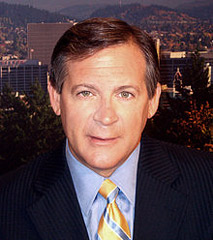
Rick Francona is a media analyst on the Middle East, appearing on CNN, NBC News, Today Show, MSNBC, and others. He also writes articles for MSNBC, the Council on Foreign Relations, and his blog, "Middle East Perspectives." He is a retired U.S. Air Force intelligence officer, having served in Vietnam, Middle East and the Balkans as well as at the National Security Agency, the Defense Intelligence Agency and the Central Intelligence Agency.
The author of, "Ally to Adversary – An Eyewitness Account of Iraq's Fall from Grace," Francona served as the first Air Attaché at the U.S. Embassy in Damascus, Syria until 1995. In 1995 and 1996, he served in northern Iraq with the Central Intelligence Agency. In 1997 and 1998, he was assigned to the Department of Defense counter terrorism branch, and led a special operations team in Bosnia that captured five indicted war criminals.
Francona has a B.A. in government and Arabic and an M.A. in international relations. His decorations include the Defense Distinguished Service Medal, the Bronze Star, and nine Air Medals, as well as campaign awards for service in Vietnam, the Persian Gulf, and the Balkans. He was awarded the Central Intelligence Agency Seal Bronze Medallion for his service with that agency.
"Inequality for All" documentary
"Inequality for All," directed by Jacob Kornbluth and narrated by former Secretary of Labor, Robert Reich, looks at the nation's widening economic gap and the disappearance of the middle class. The film has received positive reviews for its presentation of big economic ideas and how they relate to ordinary people. But it has also generated a great deal of controversy.
Svante Myrick
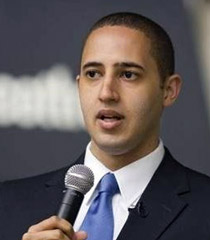
Ithaca mayor Svante Myrick addresses his experiences in city government and politics, which began with his election to the Ithaca Common Council when he was 20 years old and still an undergraduate student at Cornell University. Four years later, in 2012, he drew national attention when he was sworn in as Ithaca's youngest mayor and the first person of color to hold that office.
Myrick grew up in a family that struggled through poverty and homelessness. He graduated from Sherburne-Earlville Public Schools in 2005 and Cornell University in 2009.
Upon his election as mayor in 2012, he led a successful effort to overhaul city government and close a $3 million budget deficit. He also championed and passed a series of economic development reforms in the city, which has led the state in job creation in 22 of the 24 months he has been in office. Ithaca today has the lowest unemployment rate in New York State.
Myrick has also undertaken efforts to move city government into the internet age by overhauling its web presence and by embracing the use of social media as a tool to improve public engagement. "While Svante Myrick's personal story is one of enormous triumph against all odds, he would be the first to tell you that he is not a self-made man – that it was support from the community that got him where he is today," said Cindy Sutton, the Cazenovia Forum's President. "We look forward to hearing how his life experiences are driving his efforts to expand community engagement in Ithaca while meeting the challenges of delivering good government."
Don McPherson
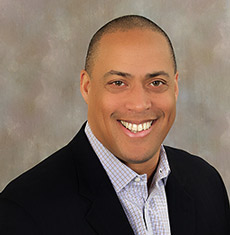
Former Syracuse University quarterback Don McPherson led the Orange to an undefeated season in 1987 and finished second in the Heisman Trophy balloting that year. McPherson addresses bullying's growing impact as a workplace issue and in fueling a general incivility permeates much of modern day communications.
In 1994, after retiring from a professional career that included stints with the Philadelphia Eagles and Houston Oilers of the NFL and the Hamilton Tiger-Cats and Ottawa Rough-Riders of the Canadian Football League, McPherson turned his efforts to the issue of "men's violence against women," as director of Sport in Society's Mentors in Violence Prevention Program, taking over for the program's founder, Jackson Katz. He emerged as a national leader and advocate for the prevention of sexual and domestic violence, and has spent the last two decades conducted workshops and lectures for more than 250 college campuses, community organizations and national sports and violence prevention organizations.
McPherson has twice testified before the United States Congress and has worked closely with the U.S. Departments of Education and Defense on issues of sexual violence in education and the military, respectively. He has provided commentary on numerous national news programs and was featured in O Magazine and appeared on the Oprah Winfrey Show. Don also created and hosted "Training for Life" on MSG Varsity, a life skills TV show that examined a myriad of social issues and sports. In 2012, Training for Life's episode on "Sports Parenting" was nominated for an Emmy Award.
« HIDE DETAILS »
2013 Speakers
Will Shortz, New York Times crossword editor
Dave Eichorn, WSYR-TV meteorologist
Lakshmi Singh, News anchor for National Public Radio
David Cay Johnston, Investigative journalist and author
Father George V. Coyne S.J, Jesuit priest and astronomy scholar
« HIDE DETAILS »
Will Shortz
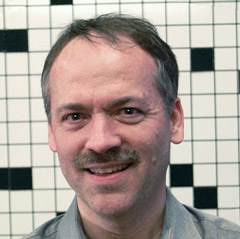
Shortz, who appears regularly on National Public Radio, orchestrated a series of puzzles and word games for the audience to play along with him during his talk.
A native of Indiana, Will Shortz began his professional career as a puzzle maker when he was a teenager. He graduated from Indiana University in 1974 with a self-designed degree in enigmatology (the study of puzzles), then earned a law degree from the University of Virginia Law School in 1977. He went right to work in the puzzle business, first for Penny Press (1977) and then Games magazine (1978). Shortz spent fifteen years at Games, including four years as editor, before moving to The New York Times in 1993.
Since 1987, Will Shortz has also been a regular on NPR's Weekend Edition Sunday. He's since become the leading national authority on popular puzzles, with hundreds of books to his credit and a central role in the popular 2006 documentary film Wordplay, featuring Bill Clinton and Jon Stewart. Shortz has even guest-starred on The Simpsons (in 2008) and How I Met Your Mother (in 2010).
Will Shortz is an icon in the world of crossword puzzles.
Dave Eichorn
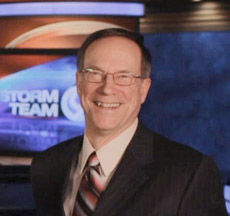
"Climate Change Through a Meteorological Perspective" - Eichorn works with Syracuse Media Group as a meteorologist for the Post Standard and Syracuse.com. Previously he spent 20 years as the on-air weatherman for WSYR-TV local newscasts. Since January 2006, he has given dozens of presentations on climate change with a meteorological perspective to thousands of Central New Yorkers.
Eichorn has worked with SUNY's College of Environmental Science and Forestry and the Syracuse City School District on the "SUNY-ESF/SCSD Environmental Challenge" student science fair. In 2008, he moderated SUNY-ESF's seminar series "CNY's Response to Global Energy and Climate Change Challenges" and has worked with community leaders across the region on local efforts toward the mitigation of our carbon footprint.
As a meteorologist, Eichorn has won awards for severe weather coverage of the superstorm of March 1993, Hurricane Gloria and for educating the public in the science of meteorology. He has held adjunct positions at Onondaga Community College and SUNY-ESF, where he has taught Introductory Meteorology and Environmental Meteorology.
Eichorn has a Bachelor's degree in Environmental Science from the SUNY Empire State College and a Master's degree in Environmental Science from SUNY-ESF. He was awarded the 2010 SUNY Chancellor's Award for academic excellence.
Lakshmi Singh
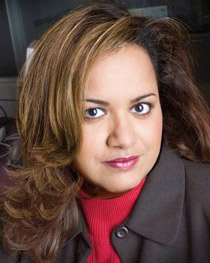
Since 2000, Singh has been a part of the award-winning team at NPR News, which has an audience of 26 million and is repeatedly recognized for its comprehensive analysis of the most pressing issues of our day. She discussed her journey through the NPR system, the changes she has seen in news reporting during the past two decades and the struggle NPR faces in remaining true to its mission while also serving a 21st century audience.
Singh is a Syracuse University graduate who got her start at WAER-FM, before moving on to NPR member stations in Spokane, Orlando and Washington, DC.
During the last two decades, NPR listeners have come to know her for her ability to quickly connect with audiences as a newscaster and a field reporter through the power of sound and descriptive narrative. Her passion for telling a good story has taken her from the heart of a Central American village in the aftermath of an earthquake to the corridors of the nation's Capitol as immigration reform was under debate to farms in the Midwestern U.S. as global fears rose over a swine flu epidemic.
While in Haiti as a documentary producer for public radio's Soundprint program, Singh uncovered compelling stories of women struggling to live with HIV/AIDS while their politically embattled government was on the verge of collapse.
David Cay Johnston
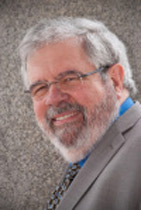
"Monopolists Rising: How Big Business Uses Government to Thwart Competition, Jack Up Prices and Deliver Services Europeans and Asians Laugh At" - Over 13 years at The Times, he reported on hidden aspects of executive compensation, showing how top executives built vast fortunes while paying little or no income tax revealed shortcomings in the pension and retirement savings systems that prompted reforms; exposed abuses of the bankruptcy system; and revealed how the rules of electricity "markets" raise prices rather than lower them. He wrote warnings about the housing bubble years before it popped.
A frequent guest on national television shows, Johnston is the author of a best-selling trilogy on the American economy: "Perfectly Legal," a book about the American tax system that won the 2004 Investigative Book of the Year Award, "Free Lunch" (on subsidies) and "The Fine Print" (on monopolies and oligopolies). In 2001, he won the Pulitzer Prize for his reporting on tax loopholes and abuses, which prompted numerous criminal convictions with long prison sentences, successful civil cases against tax cheats and tax shelter promoters as well as adoption of reforms by Congress and Oregon lawmakers. An anthology he is editing for The New Press will be published this fall under the title "DIVIDED: The Perils of Our Growing Inequality."
Over the years, Johnston's reporting has shut down so many tax dodges that Professor Douglas Shackelford of the University of North Carolina's business school named him the "de facto chief tax enforcement officer of the United States."
Other newspapers Johnston was worked for in his 40-year career include the San Jose Mercury, Detroit Free Press, Los Angeles Times and Philadelphia Inquirer. Since 2009 he has been a Distinguished Visiting Lecturer at Syracuse University College of Law, where he teaches the property, tax and regulatory law of the ancient world as a way to showing the principles and theory in the law today. He is currently board president of the 4,200-member Investigative Reporters & Editors (IRE).
Father George V. Coyne S.J

A Jesuit priest and astronomy scholar who served as head of the Vatican Observatory offered his perspectives on how science and religion can be reconciled.
Father George V. Coyne S.J., who is currently the McDevitt Distinguished Chair in Religious Philosophy at Le Moyne College, presented the lecture Evolution and the Science-Religion Debate in Modern America, drawing on his decades of experience as both a priest and scientist to "discuss how important it is to respect the richness of both religious faith and of scientific research."
Father Coyne holds a doctorate in astronomy from Georgetown University, as well as a bachelor's in mathematics from Fordham University and a licentiate in philosophy from Georgetown. After several decades on the faculty at the University of Arizona (UA), he became Director of the Vatican Observatory in 1978, a position he held ;until 2006 while also serving as Associate Director of the Steward Observatory at UA. He became the founding director of the Vatican Observatory Foundation in 1986.
"Ever since Charles Darwin first proposed that all life forms have come to be through a natural process of evolution, a debate has raged about the threat that such a scientific explanation might pose for religious belief," said Coyne. "Within the past decade within the educational, political and religious cultures in the United States this has presented us with a direct and basic confrontation between science and religion."
"What does a scientist who is a religious believer think of this confrontation?"
Father Coyne is a member of the International Astronomical Union, the American Astronomical Society, the Astronomical Society of the Pacific, the American Physical Society and the Optical Society of America. He has received numerous honorary degrees and was awarded the Mendel Medal by Villanova University in September 2008 and the George Van Biesbroeck Prize by the American Astronomical Society in January 2010.
« HIDE DETAILS »
2012 Speakers
David Kaczynski
Anne Kreamer
James Steinberg
John Zogby
NO DETAILS AVAILABLE
2011 Speakers
Eric Kingson, Professor, presidential policy advisor and author
Betty Rollin, Emmy winner and former NBC correspondent
Thomas Flynn, poet and former CBS Evening News producer
Ivory Tower Panelists
Danny Zuker, Co-Executive Producer/Writer of "Modern Family"
Peter Bergen, CNN National Security Analyst, terrorism specialist and award-winning author
« HIDE DETAILS »
Eric Kingson
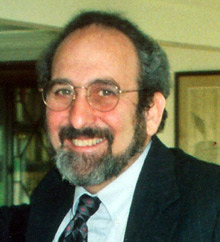
Eric Kingson, professor, presidential policy advisor and author, discussed the politics, economics and ethics of Social.
Kingson, professor of social work at Syracuse University, served as policy advisor to two presidential commissions – the 1982-83 National Commission on Social Security Reform and the 1994 Bipartisan Commission on Entitlement and Tax Reform. He was an advisor on the Obama Campaign's Retirement Security Policy Advisory Committee and the Social Security Administration's transition team. Kingson also co-directs Social Security Works, an organization which built and launched the Strengthen Social Security Campaign.
Kingson is a 2007 recipient of the Syracuse University Chancellor's Citation for Faculty Excellence and Scholarly Distinction and Syracuse University's 2010 Martin Luther King, Jr. Unsung Hero Award. His scholarship examines the politics and economics of population aging, Social Security policy, baby boomers, cross-generational obligations and the distributional effects of changes in retirement age.
Betty Rollin
"End of Life Choices" - Rollin, recipient of the DuPont and Emmy Awards and former NBC correspondent, focuses primarily on human interest stories. Two of her books First, You Cry and Last Wish focus on her struggles with breast cancer and her mother's terminal disease respectively, and both have been made into movies. She is currently a correspondent for PBS' Religion and Ethics Newsweekly Segment.
Rollin began the discussion by telling the audience about her mother. At the age of 74, Rollin's mother was diagnosed with ovarian cancer. After it seemed that the cancer had gone into remission, it came back again "hard and mean," and this time her mother had had enough. Rollin read the audience a quote from her mother: "I've had a wonderful life but now it is over." The daily struggle, pain, and hopelessness were overwhelming to her mother, and Rollin understood that her wish to die was not a passing whim.
About twenty years ago, when Rollin faced this obstacle with her mother, there was no precedent for mentally sound patients with a terminal illness who wanted to end their lives. After a difficult search, Rollin and her husband found a solution. Knowing she had an option, Rollin's mother "was herself again"; having the drug gave her a sense of control. As Rollin told the audience, "she died graciously and gratefully, and we were grateful too."
Twenty years after her experience with her mother, Rollin works with Death with Dignity, a group that tries to change the laws surrounding physician assisted suicide. Currently there are only two states, Washington and Oregon that have passed laws that allow this act. Massachusetts is currently in the decision process. The main opposition stems mostly from the Catholic Church, which condemns any voluntary taking of human life, with Rollin claiming that this criticism was not shared by all individual members of the Church.
Many of the people who receive the drug that will end their lives choose to never use it. Knowing that they have an escape is comfort enough. Though there is significantly more material on this issue now than when Rollin and her mother faced it years ago, people facing this decision do not have many resources at their disposal. Rollin's goal is to spread understanding about the issue and to educate the public both about Death with Dignity and physician assisted suicide. In response to a question about what individuals can do to support Death with Dignity, Rollin suggested supporting the initiative in Massachusetts and simply raising awareness about the issue.
Thomas Flynn
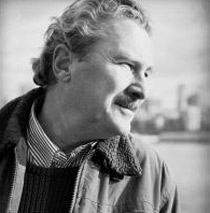
Thomas Flynn, former CBS Evening News producer, read from his acclaimed book-length poem "Bikeman," an account of his experiences at Ground Zero marking the 10th anniversary of the tragedy.
In 2001 Flynn was a producer for CBS Evening News with Dan Rather, living in lower Manhattan near the corner of 10th Street and Sixth Avenue. When the first plane hit the north tower of the World Trade Center, he grabbed a pen and notebook and rode his bike to the scene, arriving at about the time the second plane hit the South tower.
"Bikeman," published in 2008, is Flynn's account of his experiences in the midst of the disaster, including his struggle to both cover the story and survive it. In his foreword to the book, Dan Rather wrote "what Tom has set down here are the reports of the journalist as poet, or poet as journalist. The two are not so far apart as some may think, nor are the experiences limned in our cultural touchstones so far removed from our contemporary headlines. These dispatches in verse tell the story of a journey into a modern underworld, and of the escape that made it possible to tell the tale. Here is a survivor's lament, related by one who 'did not live through it' but 'just did not die.'"
In addition to working for the CBS Evening News, Flynn was a founding member of 48 HOURS and a producer at 60 Minutes for Steve Kroft. He currently writes and produces for Dan Rather Reports on cable broadcaster HDNet.
He's been honored by the National Academy of Television Arts and Sciences with 15 Emmy Award nominations, winning six. And he was honored with the prestigious Peabody Award for his work on 48 HOURS.
Ivory Tower Panelists
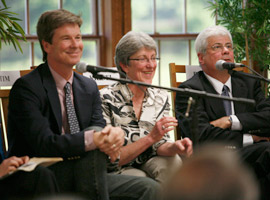
The Ivory Tower panel addressed three critical current issues with their usual smart, thoughtful analysis and commentary. They debated the pros and cons of the NYS Legislature passing a law that would allow the public the power to recall elected officials from office. They also examined the question of fairness when in many states, college or university admissions committees can deny a potential student admission to the college or university because he or she has a felony record. Finally, the panel tackled the enormously complicated problem of the U.S. Government's budget deficit.. The panel ended their presentation by giving their personal F's and A's to deserving newsmakers of the week. The audience responded with instantaneous applause to many of the choices, especially the F's.
The distinguished Ivory Tower panelists, Kristi Andersen from S.U.'s Maxwell School, Tim Byrnes of Colgate University, Lisa Dolac from S.U.'s College of Law, Bob Greene of Cazenovia College, Tara Ross, from OCC, Bob Spitzer from SUNY Cortland, and moderator David Rubin, former Dean of the Newhouse School at S. U., also readily answered many questions from the audience about how the program works, how they prepare for the show each week, and how they arrived at the name of the program. The panel was altogether engaging, articulate, and delightful which made the entire evening a huge success. Comments by several people attending the event were, "This was the best fund raiser we've ever been to!" and "The evening was interesting AND fun!"
(by Cindy Sutton)
Danny Zuker
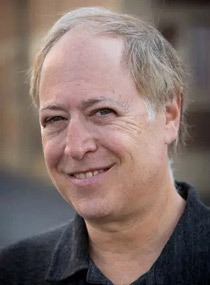
Danny Zuker, Emmy award-winning co-executive producer/writer of the hit television series Modern Family, gave a lecture on the relationship between comedy and American culture. The talk was a part of the Cazenovia Forum Lecture Series and was co-hosted by both the Forum and the Newhouse School of Public Communications at Syracuse University, Zuker's alma mater.
Zuker wowed the audience with hilarious recounts of incidents from his personal life which were incorporated into popular Modern Family episodes. His focus included an episode called "Manny Get Your Gun," in which several scenes were inspired by events taken directly from the writer's life.
In another episode, couple Claire and Phil argue about the quickest way to a restaurant, so they agree to take separate cars- an instance taken directly from Zuker's life. "We definitely wanted that to be an element," Zuker said. "It felt very real. And then that exploded into 'who is the more fun parent?' And that was just pure writing."
Zuker began his lecture by describing his journey from being a production assistant on The Arsenio Hall Show to writing for the late-90s comedy series Just Shoot Me!, where he met Modern Family co-creator Steve Levitan. Levitan contacted Zuker years later, just as he was becoming disenchanted with the writing business.
"I was really feeling like my career was drying up," Zuker said. "So I started writing drama. I was all set to start becoming a very serious writer…when Steve Levitan called me up and said 'Hey, I just did this pilot, it's sort of up your alley. I'd love for you to take a look at it.' I watched the pilot that he had shot, and by the time he was done, I felt like 'What do I have to do to get on the show?' It was just so good."
Zuker's Hollywood success is no surprise to Syracuse University Professor Michael Schoonmaker, who said Zuker was the smartest person in the room when he had him as a student in the mid-80s.
Zuker's lecture ended with applause from nearly 240 people who attended. The writer also took questions from audience members, who were enthusiastic and quick to engage. "We always have a question and answer time, which is really the crux of what we designed the forums to be," said Cindy Sutton, president of the Cazenovia Forum.
A reception followed the lecture, at which members of the audience were able to meet Zuker personally and further discuss American culture and the role of a sitcom writer.
"Anybody can write," Zuker said, "But it's a writer's job to rewrite."
(by Kristin Smith)
Peter Bergen
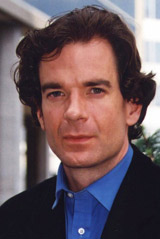
On Friday, Feb. 11, the very day that Egyptian president Hosni Mubarak stepped down in the face of increasingly violent protests in the streets, a harbinger of things to come in the Arab world and across the Middle East, the Cazenovia Forum welcomed security expert, author and producer Peter Bergen to the Catherine Cummings Theatre where he shared his views, expertise and insights on a range of national and international security issues.
Bergen, whose latest book The Longest War: The Enduring Conflict between America and Al-Qaeda was praised by the New York Times as the essential primer for understanding the war on terror, produced the first television interview with Osama bin Laden while at CNN in 1997. It was in that interview that bin Laden declared war on the United States. Bergen, director of the national security studies program at the New America Foundation, has reported on Afghanistan, Pakistan, Iraq and counterterrorism and homeland security for a raft of major news outlets. He was candid yet optimistic about the future of Afghanistan, and he thinks America and her allies in the war there will ultimately succeed.
Bergen told the crowd of more than 250 people that there are some common myths about Afghanistan that cloud some assessments of the situation there. "I think there are some very persistent myths about Afghanistan. First of all, an influential myth is that Afghanistan is the 'graveyard of empires', and it was certainly the graveyard of the Soviet Empire," he said. "But the Soviets went in, they killed a million Afghans, they made a third of the population homeless, they inflicted a totalitarian war on the population and they faced a country-wide insurrection. As a result, every ethnic group, every class, rose up as one against the Soviets."
But such is not the case with the American efforts in Afghanistan. And even though polls show support in America for the war is low, Bergen thinks progress is possible. He pointed out how the Americans are not universally reviled in the country as the Soviets were and the military challenges are accordingly less daunting. "Today in Afghanistan we face a relatively small, rural Pashtun insurgency so it's only one ethnic group, it's confined largely to the countryside," he said. It's not a comparable situation to the one the Soviets faced and in fact the Afghan people in poll after poll have a favorable view of the Americans and their efforts to defeat this rural insurgency. The Taliban have not taken a single city and are viewed with disdain by their fellow Afghans. "If you look at Afghan polling data, the most recent BBC/ABC poll found that 59 percent of Afghans had a favorable view, believed their lives were getting better," he said.
That may seem counterintuitive to Americans as they hear tale after tale of corruption and malfeasance in the Afghan government. But Bergen noted that compared to the lives the Afghans lived under the Taliban and the Soviets before them, their optimism is understandable. "If you're an Afghan who's aware of the history, of the Soviet invasion, of the civil war and the Taliban, life is obviously better," he said. School rolls are swelling, especially for girls, who were forbidden to attend school under Taliban rule, and now more than six million children attend school in Afghanistan. The Afghan economy is growing, one in four Afghans has a cell phone and infant mortality continues to fall.
There is still much wrong with Afghanistan. Corruption in the country rivals that of Somalia. But Bergen maintains there is hope there. He shared some encouraging numbers about the country and the levels of violence there, noting that one is more likely to be killed in Washington D.C. than in Kabul.
On a somewhat lighter note, Bergen assured the crowd that they were probably safe from the reach of terrorists. "I think that it's very unlikely that al-Qaeda and its affiliates will attack Cazenovia and that's a good thing," he said.
« HIDE DETAILS »
2010 Speakers
Kurt Andersen, Prize-winning author and host of "Studio 360"
Jay McKee, Army LTC
Susan Arbetter, NYS political analyst and host of Albany-based radio program "The Capitol Pressroom"
Sarah Susanka, Internationally known architect and author of "The Not-So-Big House"
« HIDE DETAILS »
Kurt Andersen
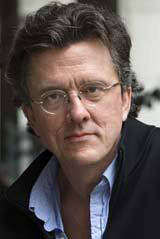
"The Rhythm of History" - The biography on his website is unambiguous: "Kurt Andersen is a writer." But that simple sobriquet is perhaps a cheeky nod to the man's multiplicity of talents. The Harvard-educated novelist, radio host, commentator, screenwriter, producer, columnist, editor and all around bon vivant shared an evening with more than 150 people Friday, Sept. 10 as a guest speaker for the Cazenovia Forum at the Catherine Cummings Theatre. Andersen, host and co-creator of the Peabody Award-winning Studio 360 radio magazine show, shared his thoughts on the future of American political, social and cultural trends in the face of the new economic realities of the day.
Andersen opened his talk with the proposition that the 1980s lasted far more than a decade. "History doesn't repeat, but it rhymes," he told the audience, quoting Mark Twain. In 1986, Andersen explained, the feel-good, party-hearty attitudes of Americans became a permanent mindset. "We all know, I think most of us, it used to be that decades lasted about ten years," he said. "We all know what the 50s means, we have a sense of that. It probably started in the late 40's sometime and certainly the 50s ended by the time of the birth control pill and Kennedy's assassination and the arrival of the Beatles," he said. "We know what the 60s are and we know that the 60s ended probably in the early 70s and we know that the 70s ended between 1980 and 1982, in all the meaningful senses beyond simple chronology," he explained. "What we know as the 1980s – politically, economically and culturally – what are they? Well, it started with the personal computer and the Reagan Administration and deregulation and this incredible bull market on Wall Street and then it just went on and on and on." Andersen posited that the 1980s never really ended – until now.
The notion that Americans could get something for nothing permeated the culture, with rising home prices and easy credit and the capricious spending of rampant consumerism. Even 9/11, Andersen said, didn't stop what he described as America's great winning streak. "I think it's no coincidence that during these last 20 years casinos and legal gambling became ubiquitous in this country in a way that young people have no idea that it wasn't always this way. Until the late 1980s, only two states had legal casinos. Now 32 states have casinos and all but two states have legalized gambling," Andersen noted. "That's a new condition and part of this party-hearty spirit of the last quarter century. It's as if around 1986 we all decided that Mardi Gras and Christmas and bachelor parties were just so much fun let's just do it all the time and just live that way," Andersen said.
From the early 1980s to the peak in late 2007, Andersen noted, the average new home value doubled after inflation, the stock market rose 1,500 percent. Debt exploded and the average household savings rate went from 11 percent to about zero. Americans lived large, figuratively and literally. "Twenty-five years ago the size of the average new house increased by half as the size of American families shrank. The average new car got 29 percent heavier 89 percent more powerful and two percent less efficient and the average American gained a pound a year," Andersen said.
But Andersen acknowledged that indeed things had gone well for America; communism was defeated, home prices kept rising, stock markets kept going up. It seemed almost magical and many, Andersen said, had an inkling that it couldn't go on forever. "It's sort of like the way everybody I think knew that Barry Bonds and Roger Clemens weren't playing fair, really? Can they really be hitting that many home runs? But nobody wanted to be a buzz kill and say, hey maybe we should give them a blood test. Our state of denial was, if not universal, it was widespread. There were plenty of smart, rational people engaged in a kind of magical thinking. But this idea of the new economy, whatever that means, somehow it will all work out, is mythical," Andersen said.
But the outlook, Andersen thinks, isn't as dour as the recent past would indicate. He sees a great reset in the American psyche and is heartened by recent trends in the choices college graduates are making. He noted that despite ideological divides in the country, pragmatism is often winning the day. "There's a documentary coming out next month called Waiting for Superman that's a very good film. It was made by the same 'liberal' Hollywood filmmaker, who made An Inconvenient Truth, and it is in favor of charter schools and it is highly critical of the teachers' unions and the system. That is, to me, flux in the ideology. That is pragmatism. That is people saying 'maybe this makes sense, let's look at this.'" Andersen also noted that one out of nine Ivy League graduates is opting to become a teacher and he thinks that is part of the American reset. "Destinies are directional and not precisely preordained. I really think we are at a crossroads moment in America where we do reset for better or we don't," Andersen concluded.
Jay McKee
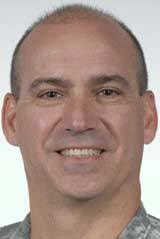
JAG Corps, on the legal support for Army operations in Pakistan, Bosnia, and Turkey
Susan Arbetter

NYS political analyst and host of Albany-based radio program "The Capitol Pressroom" - New York state government is like a old gas-guzzling Winnebago barreling along the highway with a big curve just down the road. That's the metaphor political analyst Susan Arbetter used to describe the state of the State in this critical election year. Arbetter is WCNY's Capitol Correspondent and the host of "The Capitol Pressroom," heard on public radio stations throughout the state. She spoke on June 18th at the Catherine Cummings Theatre, the latest in the Cazenovia Forum lecture series.
In an illuminating and humorous talk followed by a lively question and answer session, Arbetter portrayed the New York State Legislature as almost completely dysfunctional, with all power resting with the leaders. She said the Senate and Assembly are filled with people who have become tainted by the system, often arriving in Albany with good intentions only to get caught up in the rough and tumble game of politics as it's played in New York's capitol.
"You know the myth of the frog that won't jump out of hot water…that's Albany," she said.
Arbetter described a political system in which each party tries to outmaneuver the other to political advantage rather than public good. "It all boils down to the schoolyard," she noted. "Everything that happens in Albany is because of a slight or an ego bruise."
For instance, she said the Democrats' pledge for reform will take a back seat to a desire to get even after decades of smaller offices, older computers, and most importantly, significantly less money for "member items" or pork to dole out in their district. "Are they all insane?" she asked. "No, merely human, and opportunistic."
The elections this year are particularly important, Arbetter said, because 2010 is a Census year. If the Democrats hold their two seat majority in the State Senate they can redraw district lines in such a way the GOP can be out of power for decades. Everything done in Albany this session has been done with this fact in mind. "The future of the Republican Party is at stake" Arbetter told the audience.
But she also held out some hope that things could improve. The November elections are that curve in the road. The entire political establishment is being voted on and there are some unique vulnerabilities among incumbents. Four of the statewide Democrats were not elected to their current office and the Republicans have little name recognition. The state's looming $60 billion budget deficit—"the big ugly" she called it—may finally cause people to pay more attention to "the way the sausage is made" in Albany" and to force changes at the ballot box.
Sarah Susanka
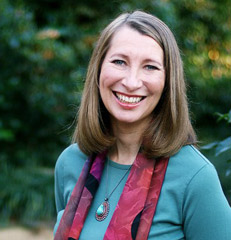
"THE NOT SO BIG LIFE – MAKING ROOM FOR WHAT REALLY MATTERS" (by Jonathan Monfiletto)- Before Sarah Susanka began her talk as part of the Cazenovia Forum lecture series, she complimented the people of the village of Cazenovia for the strong sense of community she found evident during her visit. "If we could bottle what you guys have here, this would be a much, much better country," she said.
The bestselling author and architect spoke before a packed house and standing room-only audience at Catherine Cummings Theater on the subject of "The Not So Big Life: Making Room for What Really Matters."
Susanka gave her talk on Thursday, March 11 and first spoke about the "not so big" house, which she said has more to do with quality than quantity in terms of comfort and beauty. The "not so big" house, Susanka said, is better instead of bigger, built to last and meant to inspire the inhabitant, with quality and character. It is not about the size, but about how to use the size sufficiently.
"We need to design for the way we really live," she said. "We need a new blueprint to fit how we live." Susanka noted that people often incorporate formal spaces, such as dining rooms and other rooms that go unused, simply as a way to keep up and impress others. However, she said, people need to build to ensure they feel at home in their house. "We're not looking for awe in our living room," she said. "If you don't design your house your own, you're never going to feel like you belong."
The "not so big" house also includes details, such as tiles and bookshelves, that are built into the house and give it a personalized touch through inexpensive craftsmanship. "These kind of things add a lot of character," Susanka said. "That beauty keeps speaking of you." It is not just homes that are too big though, Susanka said, as she began talking about the "not so big life," which incorporates aspects similar to those of the "not so big" house."
"I had no time to do the things I care about," she said, talking about how she realized she and other people were too busy and letting their lives run them. "It's about just being able to take time to show up in your life."
People tend to think they have to wait until they retire to do the things they enjoy, Susanka said, but they can and should pursue those things now. In fact, Susanka said she slotted herself in as a client in order to make time for herself.
Susanka concluded her talk by discussing the "not so big" community, which utilizes concepts of new urbanism architecture to make the community a better, more livable place where people actually enjoy being and want to stay. "We need to bring things down to scale a little so we feel related to the person across the street," she said. "I would like to see communities where you could live forever."
« HIDE DETAILS »
2009 Speakers
Prof. Michael Johnston, Professor of Political Science, Emeritus at Colgate University
Daniel Reicher, Director of Climate Change and Energy Initiatives at Google
Prof. Richard Garnett, University of Notre Dame Law Professor
Catherine Bertini, U.N. expert on international humanitarian relief and agricultural development
« HIDE DETAILS »
Prof. Michael Johnston
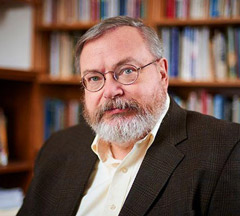
"Speaking on American politics, corruption, and reform"
Daniel Reicher
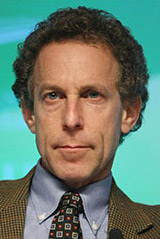
"GOOGLE EXEC TALKS ALTERNATIVE ENERGY AT CAZENOVIA FORUM" (by David Chanatry) - The world faces an unprecedented climate crisis, but through technology and innovation the global warming problem can be solved. That was the message from Dan Reicher, The Director of Climate Change and Energy Initiatives at Google.
"The best way to predict the future is to invent it," said Reicher. He's in a unique position to do just that, as he directs investments into promising new energy technologies as part of Google's philanthropic arm, Google.org.
Reicher was a member of the Obama transition team and a leading contender to become the Secretary of Energy earlier this year. In a talk leavened with self-deprecating humor, he briefly laid out the case for fast action to combat climate change, citing some of the trends that have the mainstream scientific community so concerned, including the rapid post-war buildup of heat-trapping carbon dioxide in the atmosphere and the fact that the warmest 10 years we've ever had have all come since 1997. But most of his talk was focused on developments in alternative energy and energy efficiency that have the potential to radically reduce carbon emissions from fossil fuels.
"The good news," Reicher told the audience, "is we actually have a pretty good idea how to get this done."
Reicher has a Cazenovia pedigree and a long list of accomplishments in environmental activism. A Syracuse native, he got his start kayaking along the Cazenovia Lake shoreline in his youth and reporting leaking septic systems to the village authorities. Later, as a senior attorney at the National Resources Defense Council he filed lawsuits to compel the Energy Department's nuclear weapons plants to follow environmental laws. He eventually became Assistant Secretary for Energy Efficiency and Renewable Energy in the Clinton Administration.
Reicher said Google's founders are committed to a clean energy future. The company is supporting research and development into promising technologies, funding research at universities and directly investing in what Reicher calls "breakthrough" technologies. He was particularly excited about an electricity-generating method known as enhanced geothermal, essentially drilling deep into the earth, fracturing the bedrock and using the earth's internal oven to turn water into steam. The beauty, Reicher said, is that this system could work virtually anywhere if you drill deep enough, not just in seismically active places like Iceland, which has harnessed the Earth's heat for years.
"If you could exploit just two percent of Nevada's (enhanced geothermal) potential, you could get 150 thousand megawatts of power," said Reicher.
Other promising energy technologies he cited included what's known as solar-thermal energy and offshore wind. Reicher added that Google estimates these new technologies will create nine million new jobs in the next 20 years, including as many as 30 thousand jobs manufacturing wind turbines right here in New York.
Prof. Richard Garnett
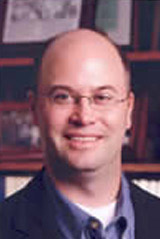
"RIGHT QUESTIONS ABOUT SCHOOL CHOICE" (by David Chanatry) - University of Notre Dame law professor Richard Garnett made a forceful argument for school choice in the latest Cazenovia Forum lecture, held on May 29th at the Catherine Cummings Theater in Cazenovia.
Garnett told the crowd that school choice is "not a Democrat versus Republican issue" but instead is civil rights issue rooted in the social activism of the 1960s.
"Should parents have the right to determine where, how and by whom their children will be educated?" Garnett asked. "Do people have that right?"
Garnett spoke as part of the Cazenovia Forum's association with the University of Notre Dame Hesbergh lecture series, named for the former president of the nation's best known Catholic university. The talk was co-sponsored by the Notre Dame Club of Syracuse and Central New York.
A onetime law clerk to former Chief Justice William Rehnquist, Garnett writes and teaches about freedom of speech, religious freedom and First Amendment law, among other issues. That expertise came into play three years ago when he wrote an amicus curiae or "friend of the court" brief to the U.S. Supreme Court in a major school-voucher case, Zelman v. Simmons-Harris.
The Court ruled the Constitution allows state and local governments to experiment with school voucher programs, including at religious schools. While the decision established a constitutional basis for choice, it has not ended the political debate over the wisdom of allowing government funds to be used for private education. Garnett said the question now comes down to whether school choice works.
"In my view school choice programs are sound public policy and consistent with the Constitution," said Garnett.
Garnett argued the time has now come for "reasonable" experimentation with school choice programs, and he dismissed opponents' arguments that choice will take children and the financing that comes with them from public schools, equating this line of reasoning with "hostage taking." Why, he asked, should the job security of school employees trump the interests of schoolchildren? "The idea that someone would say 'we need your children to sustain the schools' that they themselves will not send their own children to is a very weak argument."
Garnett admitted that public schools have an extremely difficult task and often are not well equipped to handle it. He said that while wealthy people already have a type of choice—they can move to a better district or send their kids to private schools—the poor are often stuck with substandard schools that deliver a substandard education. The answer, said Garnett, is not a monopoly but the competition that private schools bring to the education system.
Catherine Bertini
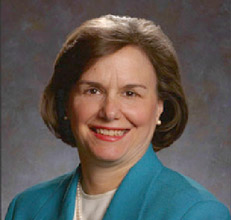
Educating women to improve the world - Catherine Bertini said that educating girls will ultimately lead to positive changes in the world. "I've found absolutely nothing more important than educating girls," said Catherine Bertini, professor of Public Administration at Syracuse University at the 10th Cazenovia Forum lecture on Friday.
Bertini is a recipient of the 2003 World Food Prize and an expert in international humanitarian relief, nutrition policies and agricultural development.
"If I were king of the world, every girl would be in school," Bertini began. Drawing from her international experience, Bertini said that women who are educated are more likely to have good reproductive health, better nutrition, increased productivity in agriculture and are far likelier to make more money than those women who are not educated.
Educated women are also less likely to contract HIV or AIDS than those who are not educated, she said. Of all people living with HIV and AIDS, two out of every three are female. The more women know about these diseases, the more successful they will be in preventing exposure and contraction.
Bertini explained that things like culture, location of schools, gender discrimination, and low quality of available education have all played a part in why more girls are not being educated around the world.
"Sometimes girls are not valued for their intelligence," Bertini said — yet another reason why educating women has not been an international priority. Bertini explained how important literacy is to women around the world. If a woman is not able to read medicine labels, clinic signs, or any instructions for a specific task at hand, they will not be capable of receiving needed medical treatment or the skills needed to finish a work task successfully.
Simply aiding women in receiving the tools to be able to read and write can effectively lower the mortality rates for themselves and their children in addition to increasing their work productivity, she said.
A surprising statistic highlighted the importance of education. "Every extra year of education can increase future wages by 10 to 20 percent," Bertini said. Increasing the amount of schooling women receive can drastically improve the possibility of receiving better wages, which in turn can be used to increase quality of life.
Bertini informed the audience of ways average citizens can aid in the efforts to improve education for women around the world.
Making education a priority for the United States government, volunteering or donating money to organizations such as UNICEF, and educating oneself about the issues within education are only a few of the many things that can be done, she said.
"Women who have been educated are more likely to educate their children," Bertini explained, which leads to a more informed and productive youth. These educated children, boys included, are able to positively apply the obtained knowledge in all aspects of their lives. By making education more affordable, providing safe schools within communities, allowing schools to be more girl-friendly and by providing a high-quality education, more girls will be capable of receiving an advantageous education. The more people are aware that educating girls will lead to positive changes in the world, the more likely people are willing to aid in the effort. "Educating yourself about these issues to in turn share with others is very important," Bertini concluded.
Students in attendance enjoyed the lecture. "The fact that this lecture focused on educating women to improve the world, was really great. You never really see anything about how strong, intelligent women, can change the world without the help of anyone else, but [Catherine Bertini's] lecture did that," said Lis Samayoa Lopez, an international studies student at Cazenovia College.
Another international studies student from Cazenovia College, Akuot Leek, said "People don't usually speak about how women alone can really make a difference, but Ms. Bertini was able to stress the importance of knowledge in women."
To find out more about the importance of educating girls around the world, visit the United Nations Girls' Education Initiative at ungei.org or visit unicefusa.org to donate time or money to the cause.
« HIDE DETAILS »
2008 Speakers
John Zogby, National pollster
Prof. Paul Verkuil, Author, lawyer, and critic of U.S. excessive privatization and outsourcing
Dr. William H. Thomas, International authority on geriatric medicine and eldercare
Ken Cook, President of the Washington, DC-based Environmental Working Group
« HIDE DETAILS »
John Zogby
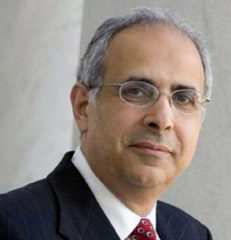
"POLLSTER'S VIEW ON ELECTION '08" (by Brandi Moyer)- Despite outside flurries, the pews of St. James Roman Catholic Church were filled on November 21 with an audience eager to hear the eighth speaker in the Cazenovia Forum Lecture Series, founder, president and CEO of Zogby International, pollster John Zogby.
Zogby linked humor with critical issues as the audience reminisced about an election that he labeled, "enormous, euphoric and historic."
Never again will the idea of an African American or woman running for President be questioned Zogby assured. This is a different America. Zogby labeled Barack Obama an 'internationalist' as he stated, "He's lived all over the world, just like our children."
Ages 18-29 were bracketed and branded as "globals." "The entire world is their playing field," Zogby said. And not just the rich are traveling. The "globals" are the least likely to label America as superior to other countries and he believes that this unprecedented global sensibility is inspirational "…and just won a big election."
Sitting in the audience, Dr. Peter Tamburro, retired superintendent of Oneida City Schools, said he felt that Zogby provided more insight into what really occurred and why. Tamburro mentioned how Zogby's talk about a global generation led him to think about his son's travels around the world.
On the other hand, McCain was labeled as more of a 'nationalist.' When evaluating McCain's loss, "Some would say its Sarah Palin, it wasn't Sarah Palin. It's never about the Vice President" said Zogby. Tamburro, though, said Palin had an influence on me and it wasn't a good one. Another audience member, Mary Margaret Freedman commented that "Sarah Palin was McCain's first executive decision," and many people did not like this decision.
According to Zogby, as early as 2006, Americans began to recognize that the nation was facing a serious crisis. Eighty percent or more saw the country as heading in the wrong direction as Zogby stressed, "You need to know how serious this number is." He continued by mentioning President Bush's approval rating, which has created a record low of 21 percent." To put things in perspective, Zogby stated that even in 1995 "OJ had a 16 percent approval rating."
According to Zogby, the return of the center, the moderate, allows a person to compare 2004 to 2008. In 2004, Zogby stated that there were "two warring hyper-partisan political cultures." This year, he said "the middle was directing this election." According to Zogby, the public wanted two things during election 2008: a problem solver and a consensus builder. Both parties put their best person forward to target moderates.
Zogby argued that at the same time the center was reborn, there was disconnect. "Congress is dysfunctional," Zogby said. "The skills required to get a congressman/ congresswoman elected are different than the skills required to run Congress." Party loyalty leads back to hyper-partisanship. Zogby continued, "No one runs for re-election by saying, I sat down with the opposition and got them to see things my way."
"Katrina was more significant in American history than [the Sept. 11,2001, terrorist attacks]," Zogby said. "September 11, 2001 bonded American people and their leaders. At the start of the war, support was close to 50/50, but as the 'shock and awe' hit, support dropped. With the Bush administration's handling of Katrina in 2005, government approval ratings started to freefall as people realized that 'it doesn't work.'"
Zogby said he believes that the transformational election was so much about change that Bush/Clinton just didn't cut it. He said, "It was not going to be about ideological change, but about problem solving and consensus building." The 18-29 year olds made up a total 19 percent of the vote out of 133 million people. The new generation of voters has high expectations as Zogby warns that to dash such expectations would be to risk losing a generation of American politics. Zogby's wife, Kathy Zogby, said "That is an important group. They are the ones that will be moving us forward in the future."
Prof. Paul Verkuil
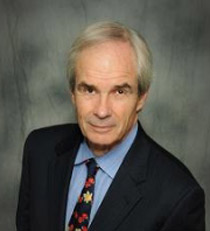
Author, lawyer, and critic of U.S. excessive privatization and outsourcing (by Brandi Moyer)- Why should the average citizen be concerned about government outsourcing? As part of the Cazenovia Forum Lecture Series on October 3, Author, Lawyer and Critic of Excessive Privatization, Paul Verkuil broke down what outsourcing means in relation to Iraq and the economy.
Verkuil proclaims that his speech is not about condemning contractors. The cover of his book, Outsourcing Sovereignty, donned a photograph of Department of Defense (DoD) contractors getting stacks of cash in Iraq. Over $6 billion of $100 bills have been shipped to Iraq, money that has seemed to disappear. Verkuil comments, "Right away we begin to worry a little bit."
He voices a concern about whether the duty of the government to govern is being compromised through private contracts quoting the DoD, "you cannot outsource inherent functions of government." He introduces the statistic that during the Gulf War there was a ratio of 50 military to 1 contractor and now the ratio is 1 to 1." Verkuil acknowledges that "there has been an enormous shift from military exclusively to military and contractor." He continues with a smirk, "we contract out the duty to review the contractors performance."
There are positives and negatives to this outsourcing situation. With the shortage of troops because of an all-volunteer army, contractors are used to fill in the numbers of bodies needed. They are trained, and they do it quickly. However, there is a debate as to whether those contracted serve with allegiance to the dollar or to the American people. Verkuil suggests that "we need to appoint people to run agencies who believe in the missions of the agencies they're running."
In one instance, the private contractor Blackwater became detached from their unit. Four contractors met their fate in Fallujah, which precipitated a militant response from the Marines. Verkuil brought up a risk resulting from the situation; such contractors do not need to report to battlefield commanders. He suggests that there are consequences when the military disobeys commands. In the case of the contractors, the military and Iraqi government has no jurisdiction. The worse that can happen is they are sent home without bonuses. Verkuil points out that "you see this disconnect; this lack of accountability."
The audience brought up the idea that the lack of a draft results in a problem with outsourcing. The volunteer army is limited. Verkuil's posed the question, "If we had a draft, do you think we'd be in Iraq?"
A Wartime Contracting Commission is forming with two jobs. One is to find out what happened to all of the money shipped over in pallets to Iraq. The other is to do a background check on contractors and be involved in a decision of whether or not to use private contractors.
Verkuil implied that symbolic messages matter. The public forms a symbolic attachment with government figures because of their uniforms and oaths. Private contractors often have no oath or badge. The American public feels comfortable with the idea that someone is willing to work for the people instead of for the dough. This issue sparked a mini debate during the question and answer session. The focus was on whether or not there can be control of contracting to make it a reliable and cost efficient method.
Senior at Cazenovia College as well as intern for Catherine Cummings Theatre, Kristin Levernosh states, "The speech sparked a lot of interest…he brought up some hot topics."
Indeed.
Iraq was not the only topic of interest Friday night. Switching gears and focusing on the economy, Verkuil mentions the Net Capital Rule that was changed in 2004. This change allowed five of the largest investment banks to increase their ratios meaning instead of 1$ in reserve for every $15, places such as Merrill Lynch had $1 for every $40 or higher. Goldman Sachs, one of the five, was headed by Henry Paulson at the time, now the current Secretary of Treasury.
Verkuil suggests that the SEC must have been asleep at the switch. Such outsourcing of monitoring risks is a main contributor to the current problem. Lack of oversight coupled with the suspension of this rule pushed everything over the edge. Now, there is $700 billion legislation.
As the audience rose after a healthy discussion on outsourcing at the Catherine Cummings Theatre, Levernosh said, "He explained it in a way so everyone can wrap their brains around it."
Dr. William H. Thomas
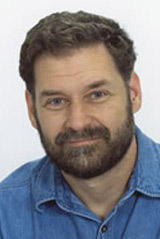
"Speaker addresses eldercare across the nation" (by Brandi Moyer) - "If you learn how to care for the elderly, you learn how to care for a community," stated an enthusiastic international authority on geriatric medicine and eldercare, Dr. William H. Thomas, to a full house at the Catherine Cummings Theatre on Friday. The Cazenovia Forum teamed with the Cazenovia Chamber of Commerce to introduce Dr. Thomas, hoping to develop ideas about senior housing in Cazenovia.
Dr. Thomas stated, "We adults sometimes get all caught up in the fury and frenzy that we forget what matters most." He connected the history of Cazenovia with a powerful message about the importance of community. His focus was on the stories and politics of an aging society.
His own journey, told with passion, led him to share how he moved from being a fair student, to a Harvard Medical School Graduate, then an E.R. Doctor, to stumbling into a position as a doctor at a nursing home. Dr. Thomas even announced his plans to run for the U.S. Senate from New York.
One elderly patient expressing loneliness in a nursing home, Dr. Thomas said, "changed my life forever." He saw this elderly lady doing everything right and noted how it was unfair that she had to feel alone. He developed the Eden Alternative, a global non-profit organization committed to reshaping care for elderly.
Dr. Thomas describes his plan as "a heart transplant for nursing homes. We teach people how to pull out old clanking metal hearts and put in a flesh and blood heart." This initiative targets loneliness and boredom, symptoms that can be prevented and are "sometimes the most painful disease," stated Dr. Thomas. Today, the Eden Alternative philosophy is practiced in all 50 states along with a presence in many other countries.
"Society is all too willing to dispose of people who are not productive," stated Dr. Thomas. He continued, "I was an abolitionist. I wanted to abolish nursing homes. I wanted to create a society where they weren't necessary." Dr. Thomas offered advice to residents of Cazenovia, urging them to keep the elders in town and to learn from their wisdom. He suggested building a Green House, which is created so elders can live together, but have private rooms, food cooked in a kitchen and the freedom to sleep late into the morning. Dr. Thomas has found a direct correlation between better care and health and satisfaction. Yet, there are only "56 Green Houses and 16,000 nursing homes," Dr. Thomas stated. He added, "this field does not change quickly," and there is a negative regulatory system in place that makes it hard to mingle protection and innovation.
"The unfairness extended not just to the elders but to the staff too," said Dr. Thomas. To complete the change, workers needed to feel the same appreciation that is deserved of the elders.
In the Green House atmosphere, Dr. Thomas said "workers are much happier. They get to have a job as big as their hearts." He would enjoy taking part in creating senior housing in Cazenovia stating, "Let me at it. That's what I love." Patricia Hudelson, a resident of Cazenovia said, "I think there are enough people of the right age that would appreciate a facility as he described it." She was moved by his lecture and would love to see Dr. Thomas be one of the power houses behind this initiative.
Cazenovia Chamber of Commerce Office Manager, Rich Borsellino said that "We are in the first step of the process. We are open to any ideas." The Chamber is reaching out to the community for funding to start a feasibility study for the identified need of senior housing. Borsellino added, "one of the things we want to do is make sure community is involved."
After hearing the lecture, the President of the Cazenovia Chamber of Commerce, Ralph Monfort, assured that they will look more into the idea of a Green House since it remains "very new to myself and this committee." Monfort stressed that the greatest challenge is geography. However, he believes that there are many ways to keep the elders right in the heart of the Cazenovia community.
Dr. Thomas continued to talk about policy after his announcement to run for Senate. He addressed healthcare policy, education and green energy. The Cazenovia Chamber of Commerce also partnered with a non-profit organization, Cazenovia Area Senior Association (CASA) to launch a feasibility study for senior living in Cazenovia.
Ken Cook
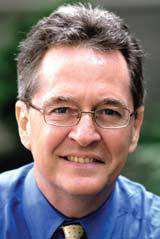
"The Farm Bill: Speaker Educates Cazenovia" (by Brandi Moyer)- Ken Cook is President of the Washington, DC-based Environmental Working Group (EWG.
Cook mainly focused on conservation and environment protection along with organic food and agriculture, while addressing problems with the Farm Bill. Bee Tolman, a Madison County farm owner admitted that the Farm Bill is complex and many may believe that government money will go directly to rich farmers in the mid-west. This does not need to be the case. Tolman states that there are "700 farms with 160,000 acres in Madison County…true family farms." To attend to the main question, where are checks going, The EWG has created 'The Farm Subsidy Database' and as a result, many more people nationwide are able to keep track of farm subsidy recipients.
Cook shows that 67 percent of New York farms and 91 percent of California producers receive no subsidies under the current bill. He said, "If you are in the program, the big guys get the money." Cook is in favor of conservation and subsidy; however, he wants to support the small and medium farms, leaving larger self-sustainable farms to stand on their own. Right now, all money goes to only 22 out of the 455 Congressional Districts.
Cook sparked concern in the audience as he provided information on who is being affected by the fight for money for conservation. In just one year, Cook showed that $2.2 billion of applications to United States Department of Agriculture (USDA) by those willing to pay half in order to address problems identified in agriculture, went unfunded.
In addition, Cook asked the audience, is the amount of pesticides on fruit and vegetables, which have been found in children, too low to matter? The answer is no. Looking at the idea of a healthier food supply, Cook stated, "For many years people thought that a baby was protected in the womb…pesticide exposure happens all the time in the womb." Measuring everything in parts per billion (ppb), Cook made it a point that even doses of pesticide as low as 0.035 ppb can have an effect and surprisingly that is the dosage of Nuvaring, a leading contraceptive that is 99 percent effective. Cook said, "The lesson is, low doses matter."
A generation of conservation work is at risk with the fast growth of the ethanol industry. In effect, there are more corn crops at higher prices. Cook wonders what will happen if there is a drop of corn production, arguing, "where that price will go is anyone's guess." This can cause unneeded pressure on those who raise livestock. There remains a lot of questions for a bill that provides few answers.
Increasing organic crop was also one of Cook's main points as he said that, "the problem is not big organic, it is almost no organic." He showed how Americans spend well over double on junk food each year than on organic food. When looking at the argument of local versus organic, Cook said that we should "find a way to begin doing both." Also, he showed disgust since $2.5 million of the $3 million in the National Organic Program went to one cotton farm.
In order to have a fair Farm Bill, Cook would argue that a safety net is needed for farmers. Also, those who step forward to the USDA should be rewarded and not turned down, unfunded. Lastly, there needs to be an increase in organic production instead of organic food being a rising import, which Cook states is 'plain crazy' knowing America's agricultural capabilities. There is still time for intervention on the extremely debatable Farm Bill.
« HIDE DETAILS »
2006-2007 Speakers
Jim Angle, Chief Washington Correspondent for Fox News Channels
Harvey A. Bender, Hesburgh Lecture speaker and renowned genetics ethicist
Tom Ricks, Pulitzer prizewinning military correspondent for the Washington Post
Rebecca Lipkin, Executive Producer of programming in the London bureau of Al Jazeera English
Tom Blanton, Director of the National Security Archives, Washington, DC
« HIDE DETAILS »
Jim Angle
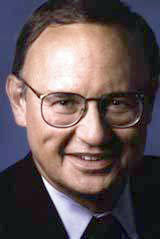
"Fox News channel's Jim Angle kicks off Cazenovia Forum lecture series" - Jim Angle is chief Washington correspondent for Fox News Channel. An audience of nearly 150 people listened as the veteran broadcaster provided a Washington insider's analysis of current topics such as the War on Terror, Social Security reform and the upcoming transfer of power in Congress. Sprinkled throughout his remarks were humorous stories and first-hand accounts that Angle has collected while serving as a White House correspondent during the past four presidencies.
At the close of his remarks, Angle took questions from local residents on issues ranging from the conflict in Iraq to the potential presidential candidacy of Illinois Senator Barack Obama.
"It was like having our own briefing on the hot topics of the day from someone who is right where the action is," said Deb Wester, who attended the event. "And the stories he told about presidents and other politicians were both interesting and entertaining."
Angle joined Fox News in 1996. He served until last year as its senior White House correspondent, as well as substitute host for Special Report with Brit Hume. He previously covered economic policy for ABC News and, before that, he worked in public radio for 18 years, anchoring the popular national program Marketplace and serving as National Public Radio's senior White House correspondent. He is also a frequent guest host of The Diane Rehm Show on National Public Radio.
"Jim Angle's speech was a great way to kick off this lecture series," said Rich Huftalen, co-president of the Forum. "The great turnout and feedback we received will help us draw more nationally-known speakers to Cazenovia and give local residents a chance to hear more about important issues."
Harvey A. Bender
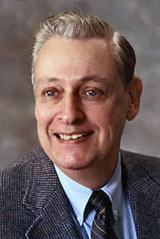
Hesburgh Lecture speaker and renowned genetics ethicist - Harvey A. Bender, professor of Biological Sciences and Director of the Human Genetics Program at the University of Notre Dame, discussed the complex social, political and personal implications of genetic engineering.
According to Professor Bender, "the new [genetics] industry is predicated upon the belief of better living through genetics." He outlined the dramatic advances of modern day genetics and both benefits and drawbacks of The New Medicine upon our society.
"It was a fascinating evening for anyone who is interested in where the ever accelerating advancements in human genetic technologies are taking our society, as well as our ability to handle all the social and ethical ramifications," said Richard.
Tom Ricks
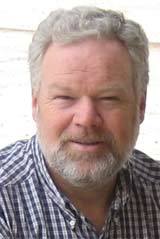
Pulitzer prizewinning Military Correspondent for the Washington Post
Rebecca Lipkin
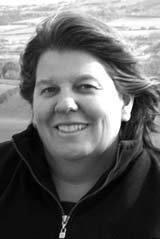
Executive Producer of programming in the London bureau of Al Jazeera English
Tom Blanton
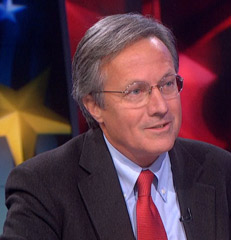
Director of the National Security Archives, Washington, DC
« HIDE DETAILS »
info@cazenoviaforum.com
©2026 Cazenovia Forum and Matai House Studio (web design). All rights reserved. Duplication is not allowed without permission.

